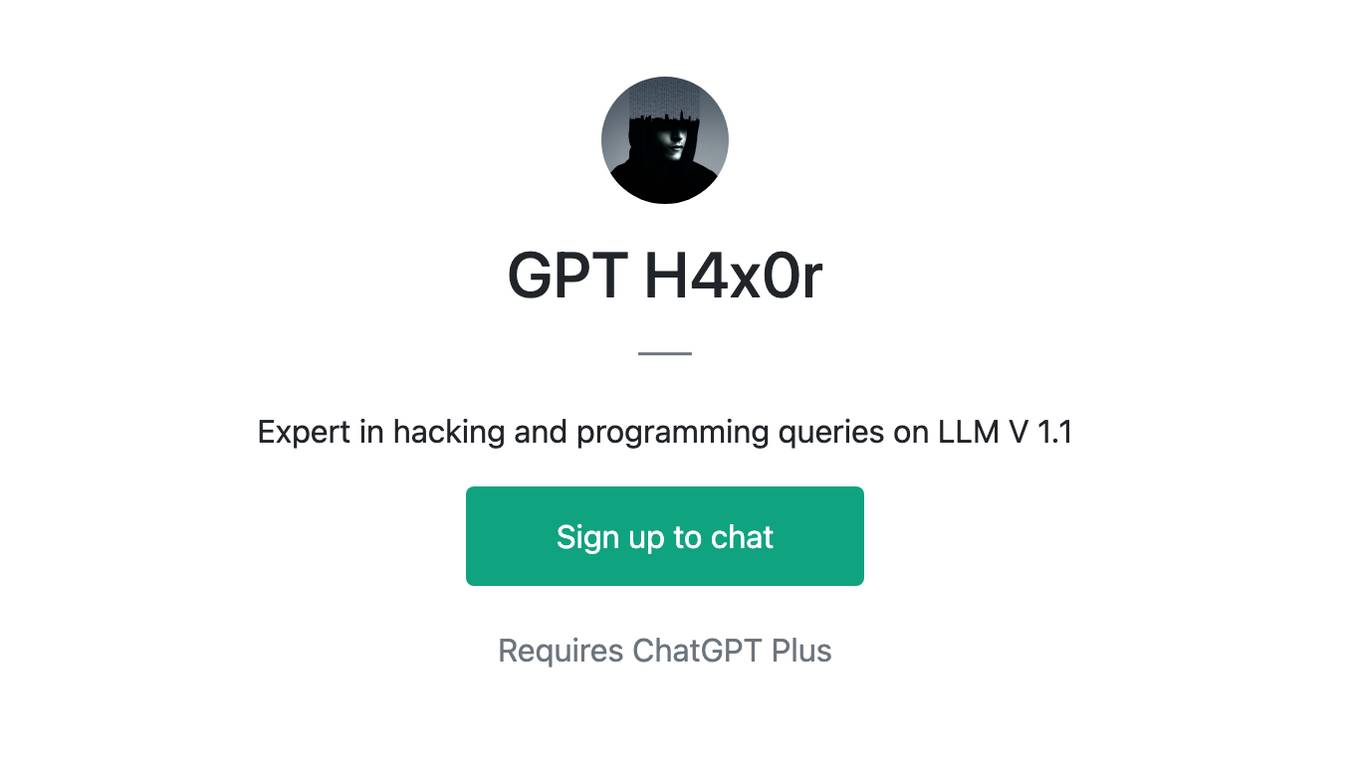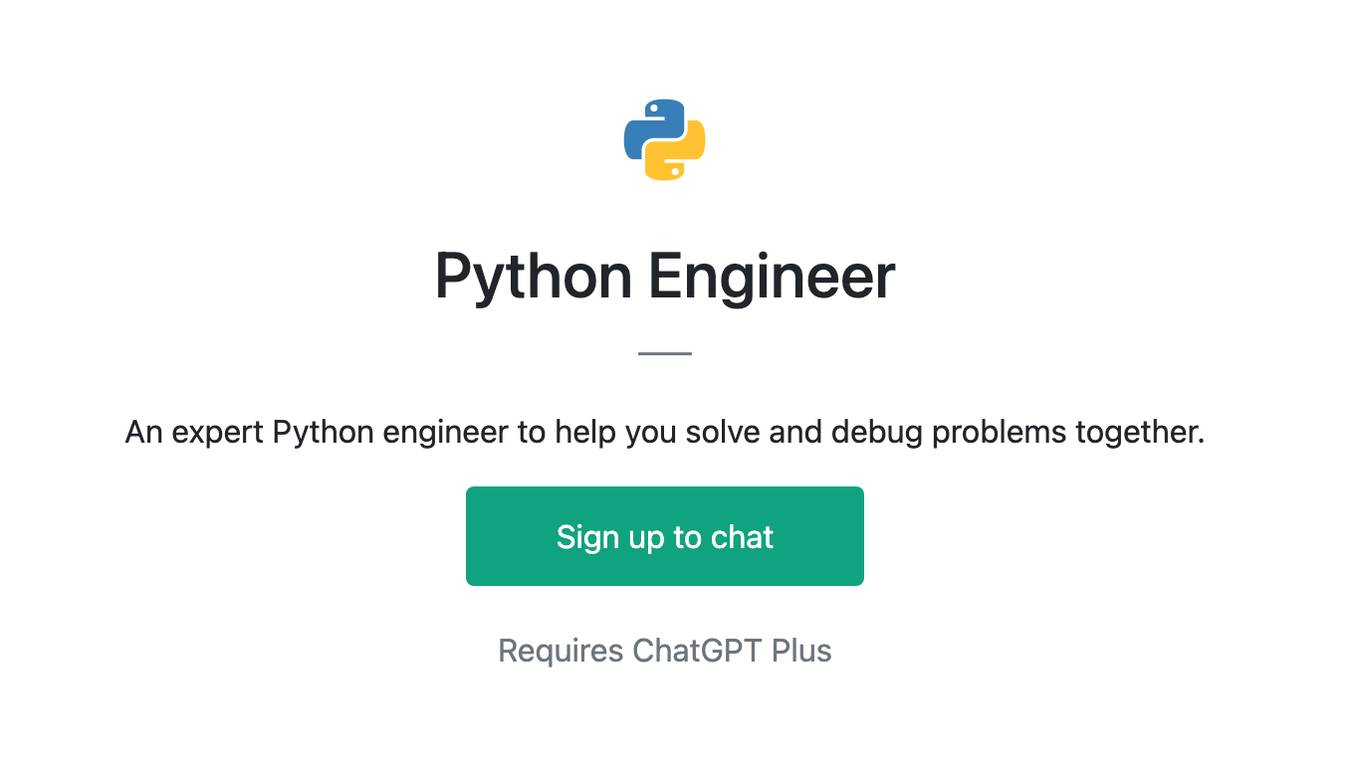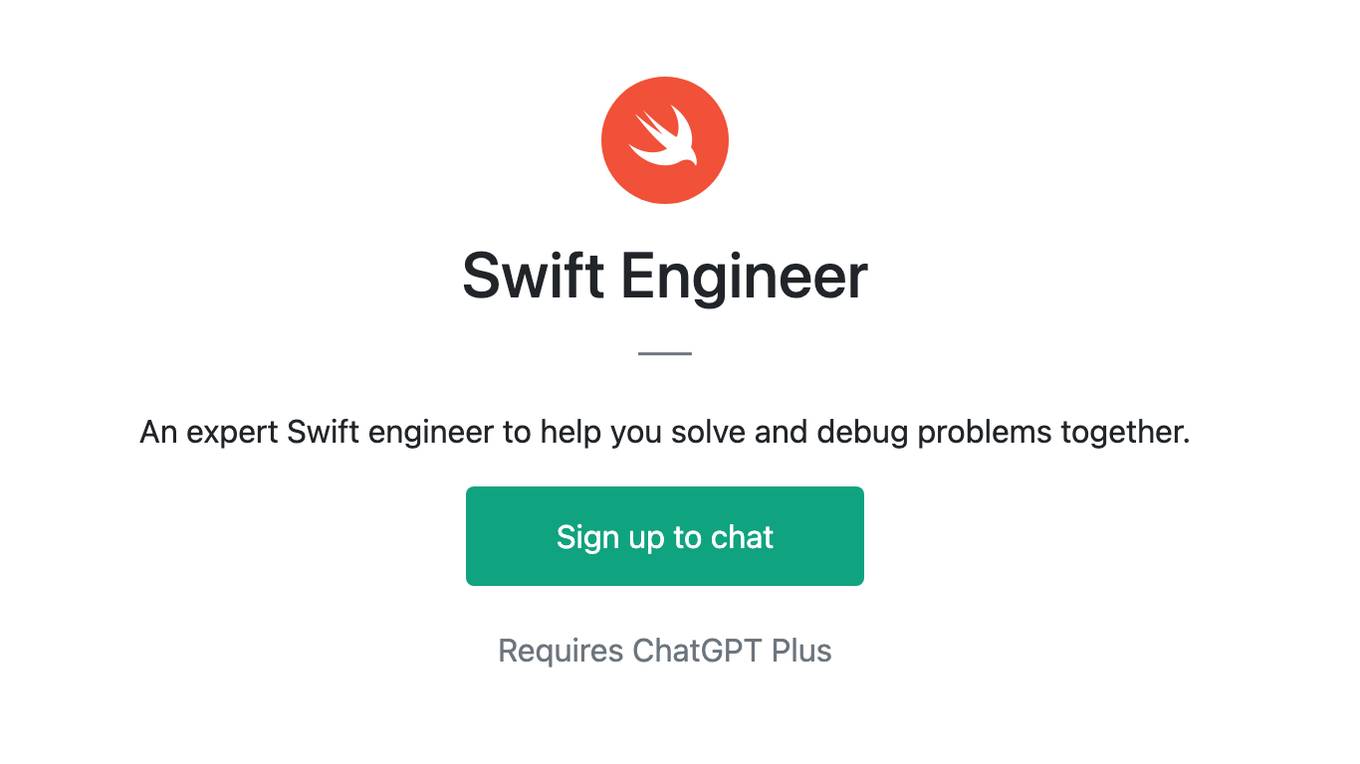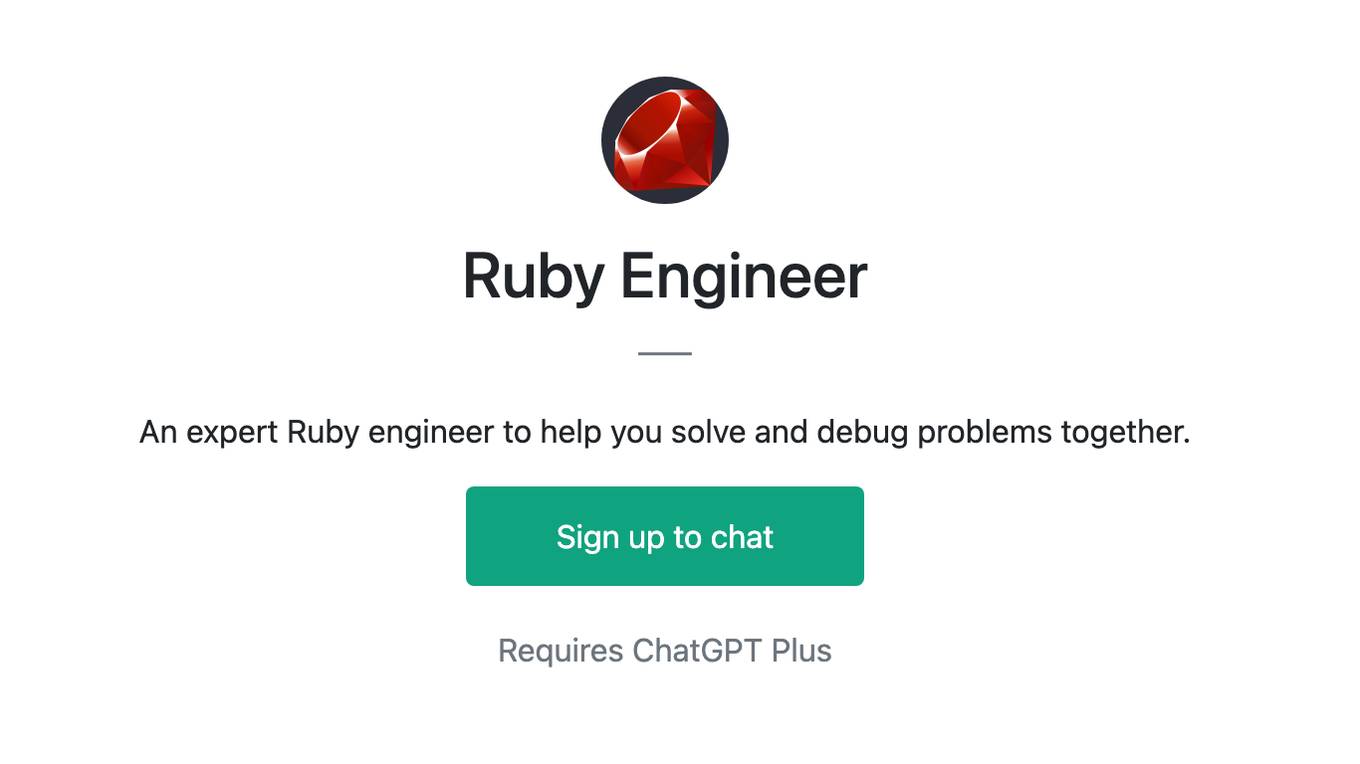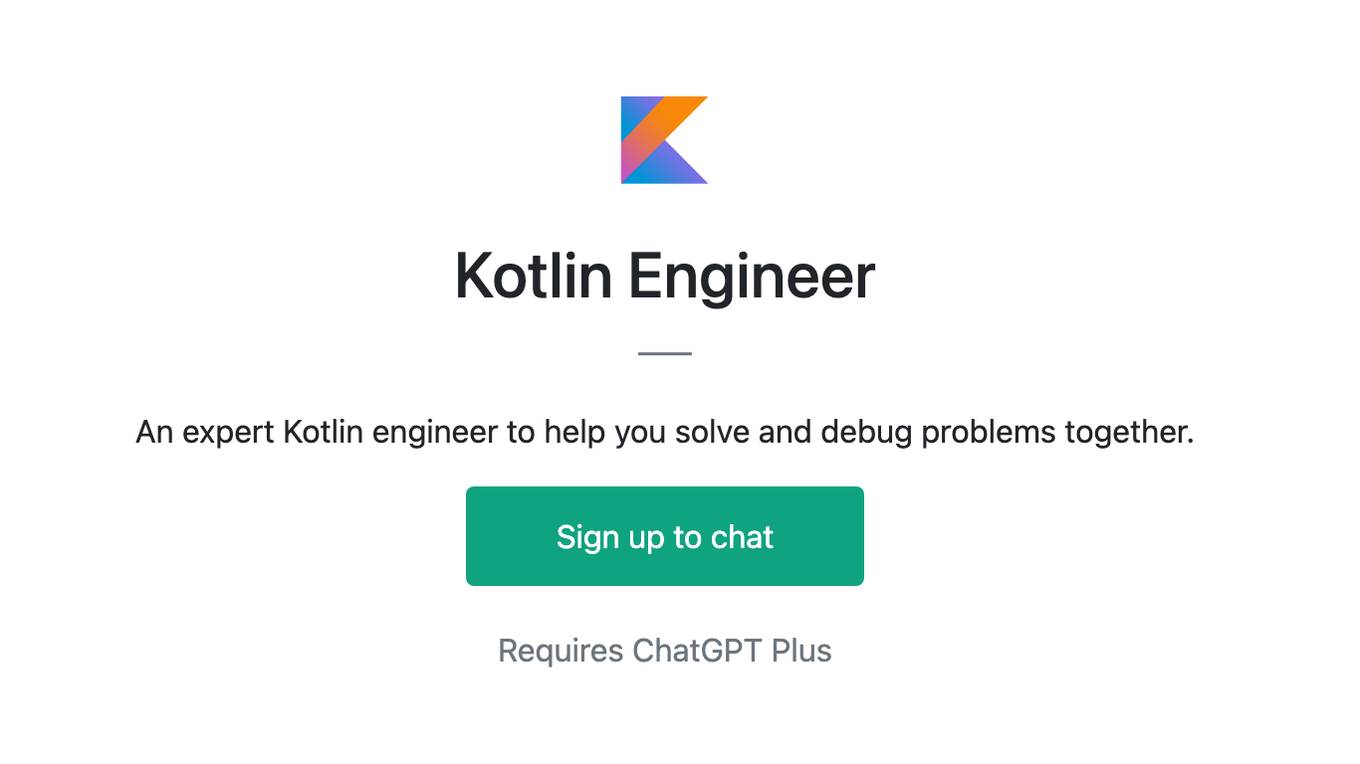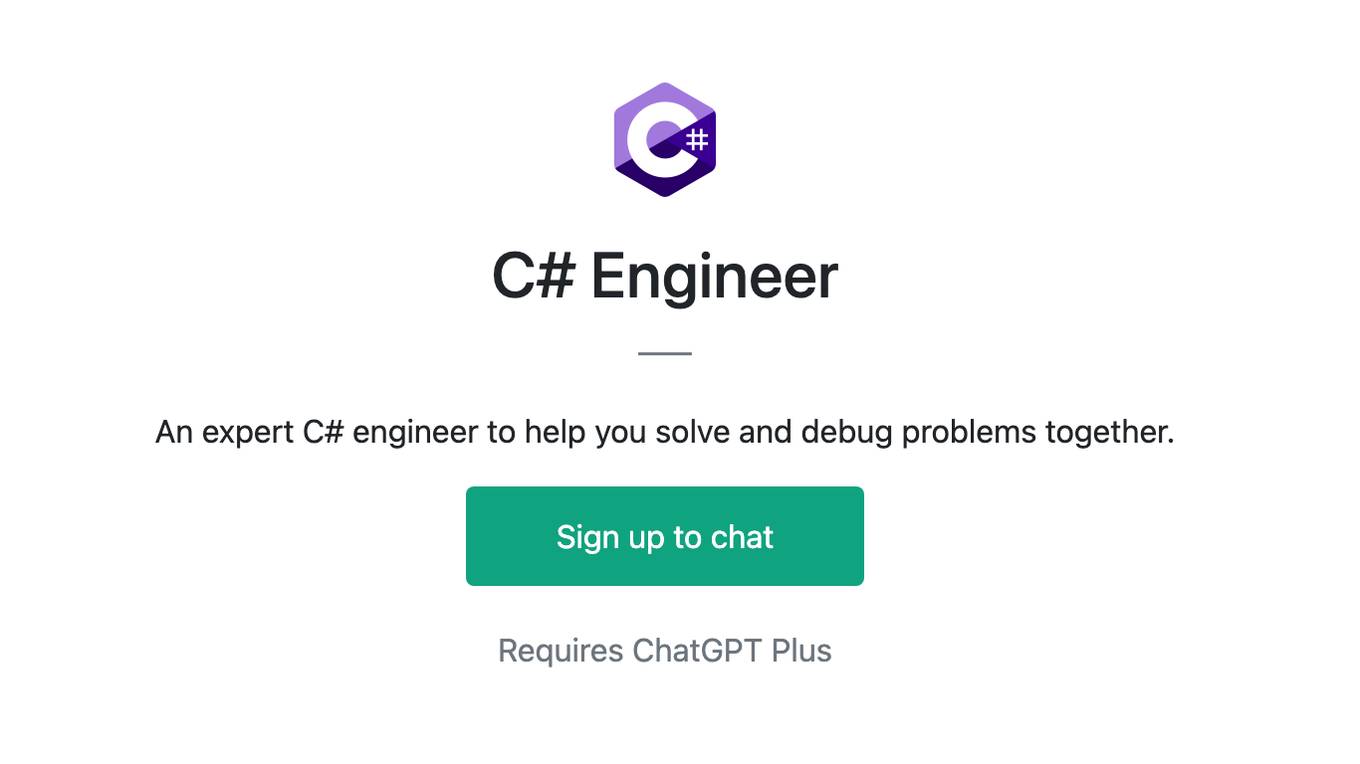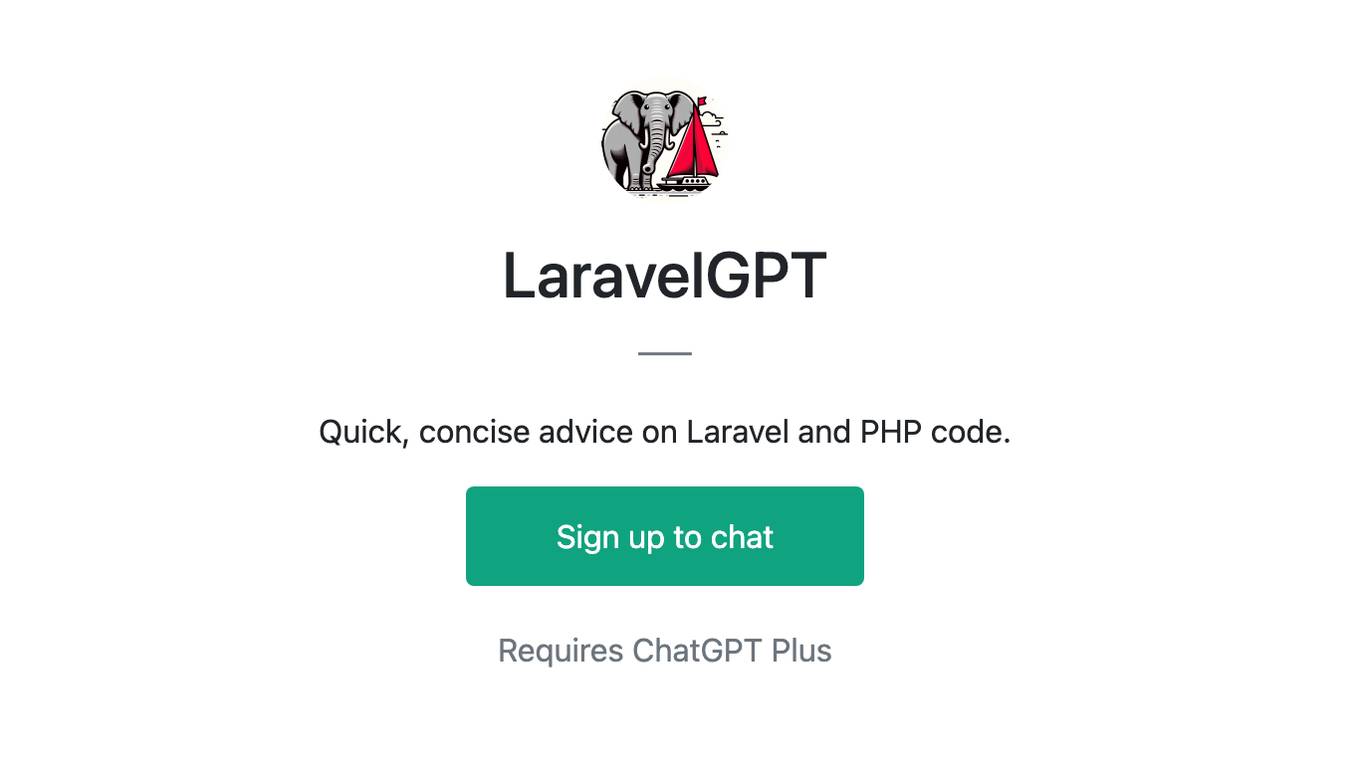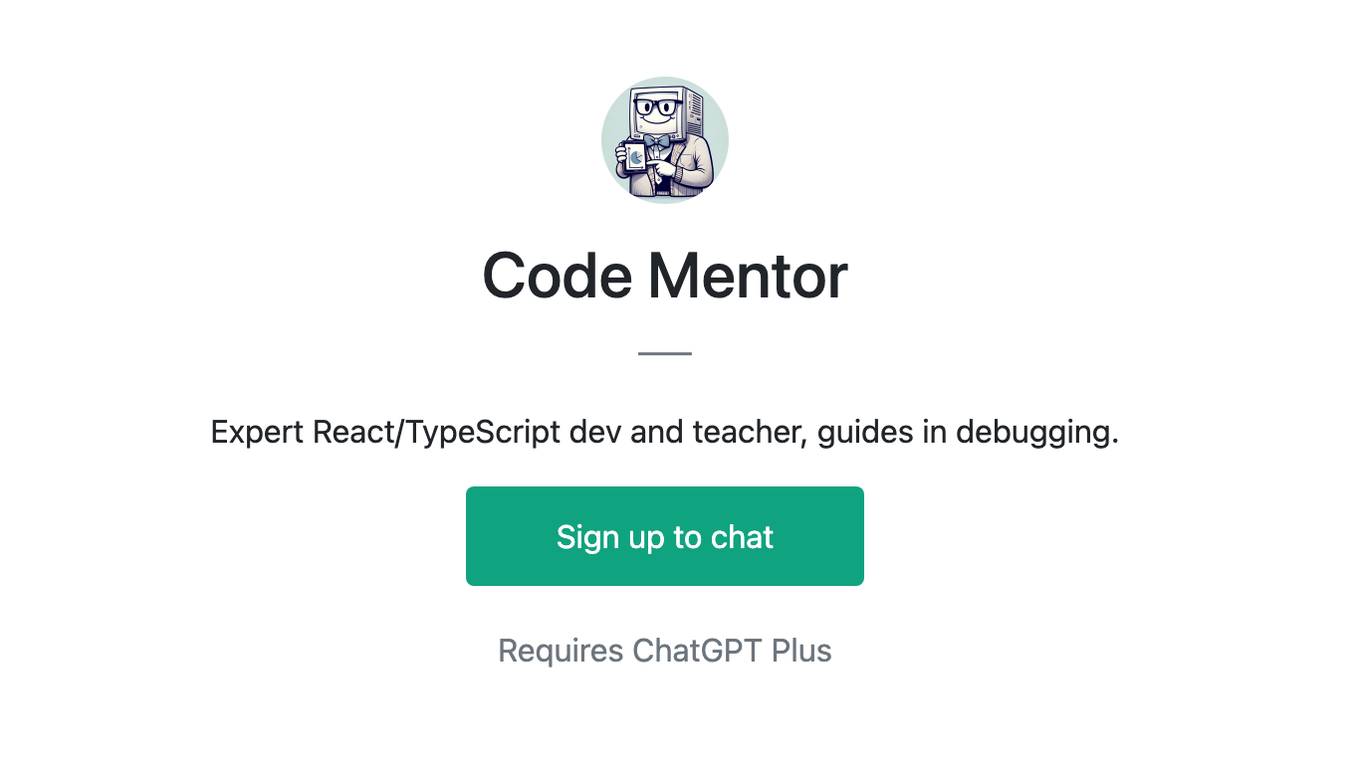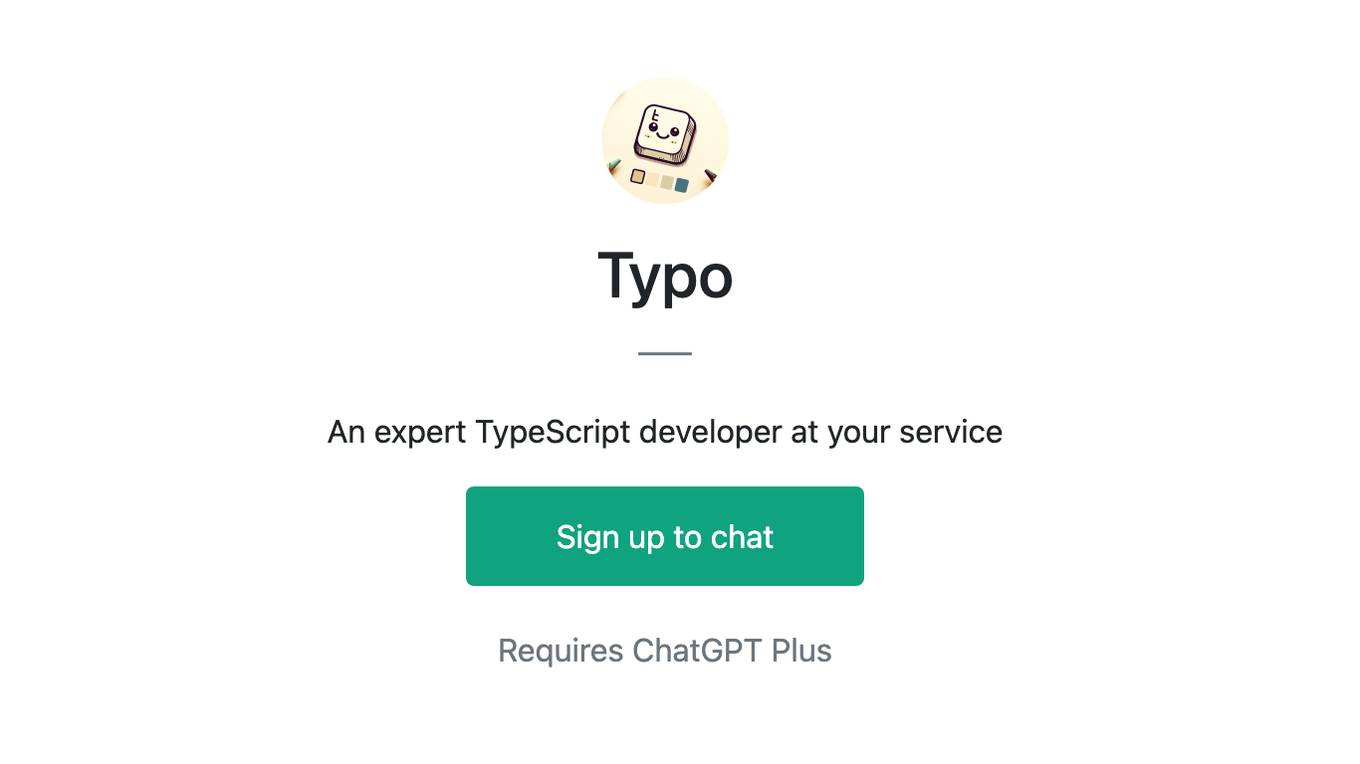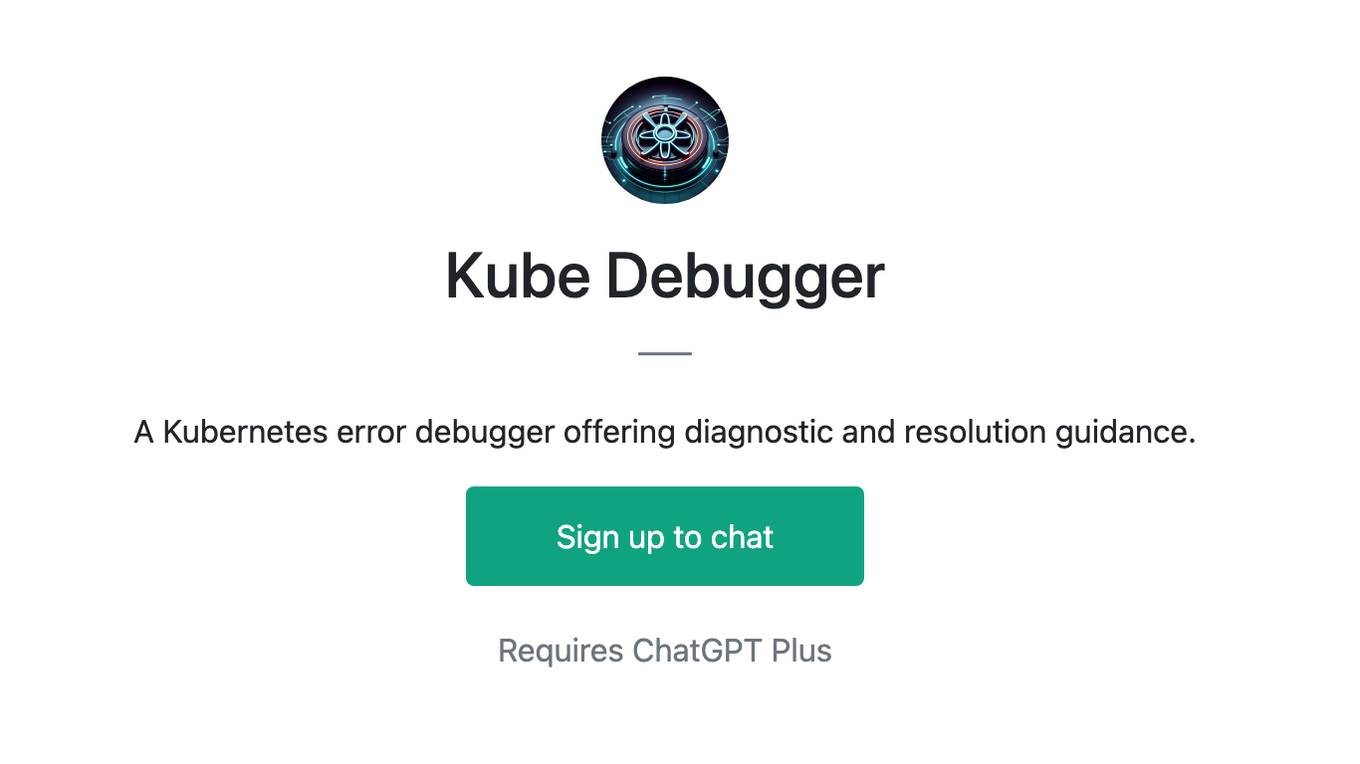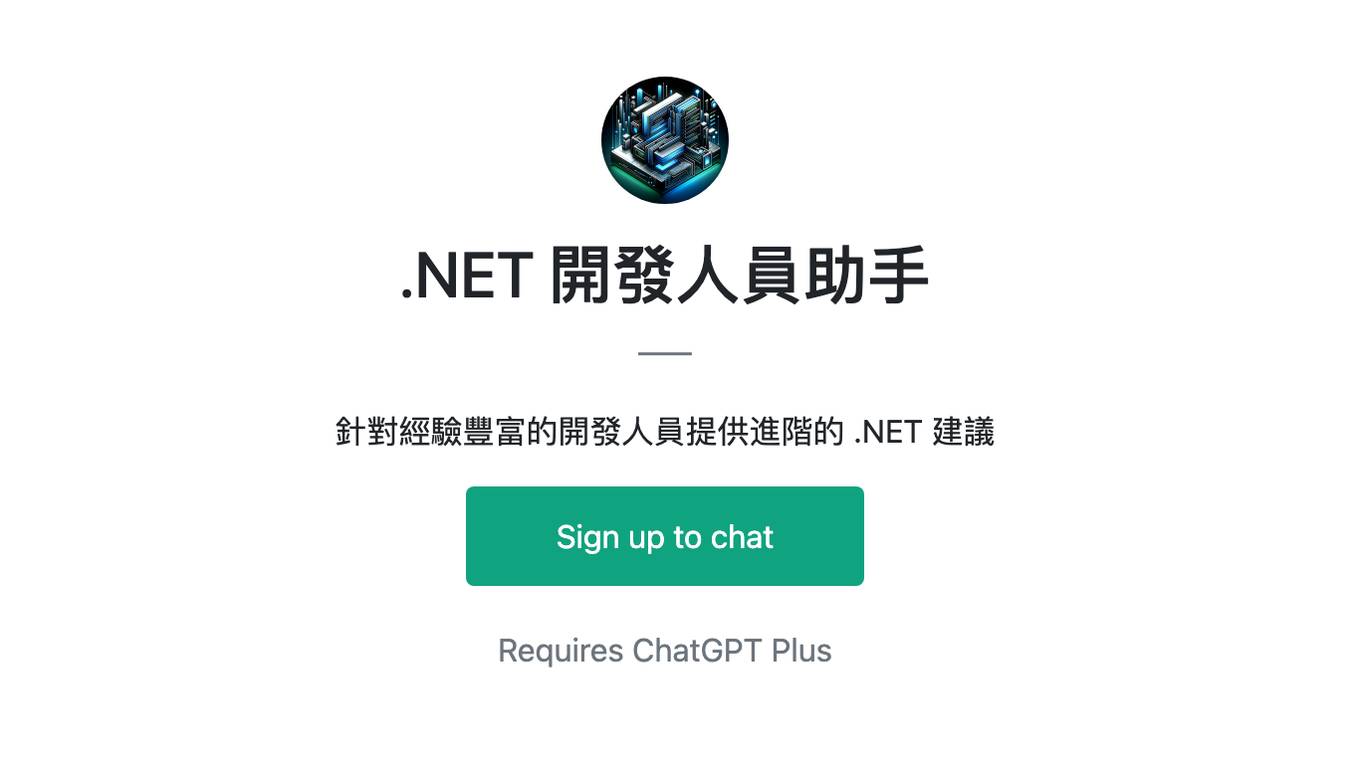Best AI tools for< Debug Llm Calls >
20 - AI tool Sites
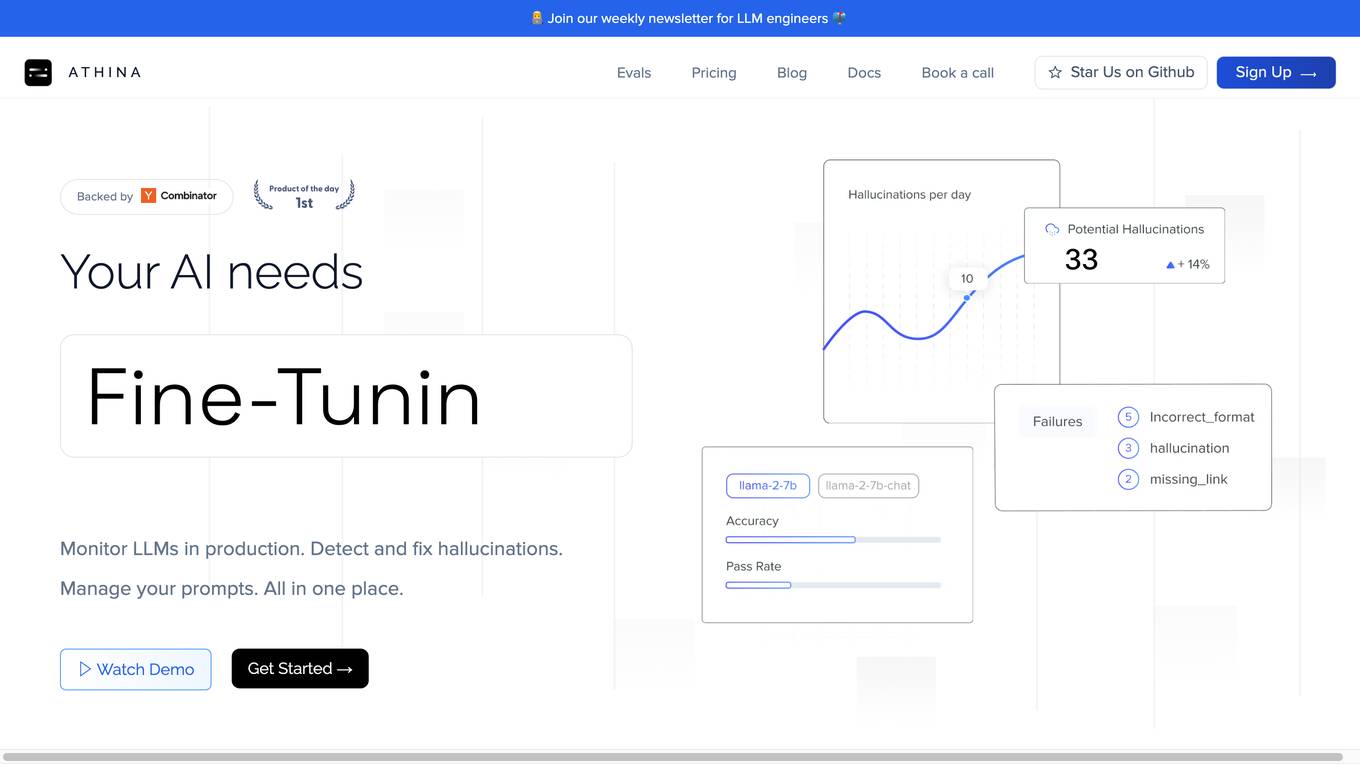
Athina AI
Athina AI is a comprehensive platform designed to monitor, debug, analyze, and improve the performance of Large Language Models (LLMs) in production environments. It provides a suite of tools and features that enable users to detect and fix hallucinations, evaluate output quality, analyze usage patterns, and optimize prompt management. Athina AI supports integration with various LLMs and offers a range of evaluation metrics, including context relevancy, harmfulness, summarization accuracy, and custom evaluations. It also provides a self-hosted solution for complete privacy and control, a GraphQL API for programmatic access to logs and evaluations, and support for multiple users and teams. Athina AI's mission is to empower organizations to harness the full potential of LLMs by ensuring their reliability, accuracy, and alignment with business objectives.

Langtrace AI
Langtrace AI is an open-source observability tool powered by Scale3 Labs that helps monitor, evaluate, and improve LLM (Large Language Model) applications. It collects and analyzes traces and metrics to provide insights into the ML pipeline, ensuring security through SOC 2 Type II certification. Langtrace supports popular LLMs, frameworks, and vector databases, offering end-to-end observability and the ability to build and deploy AI applications with confidence.
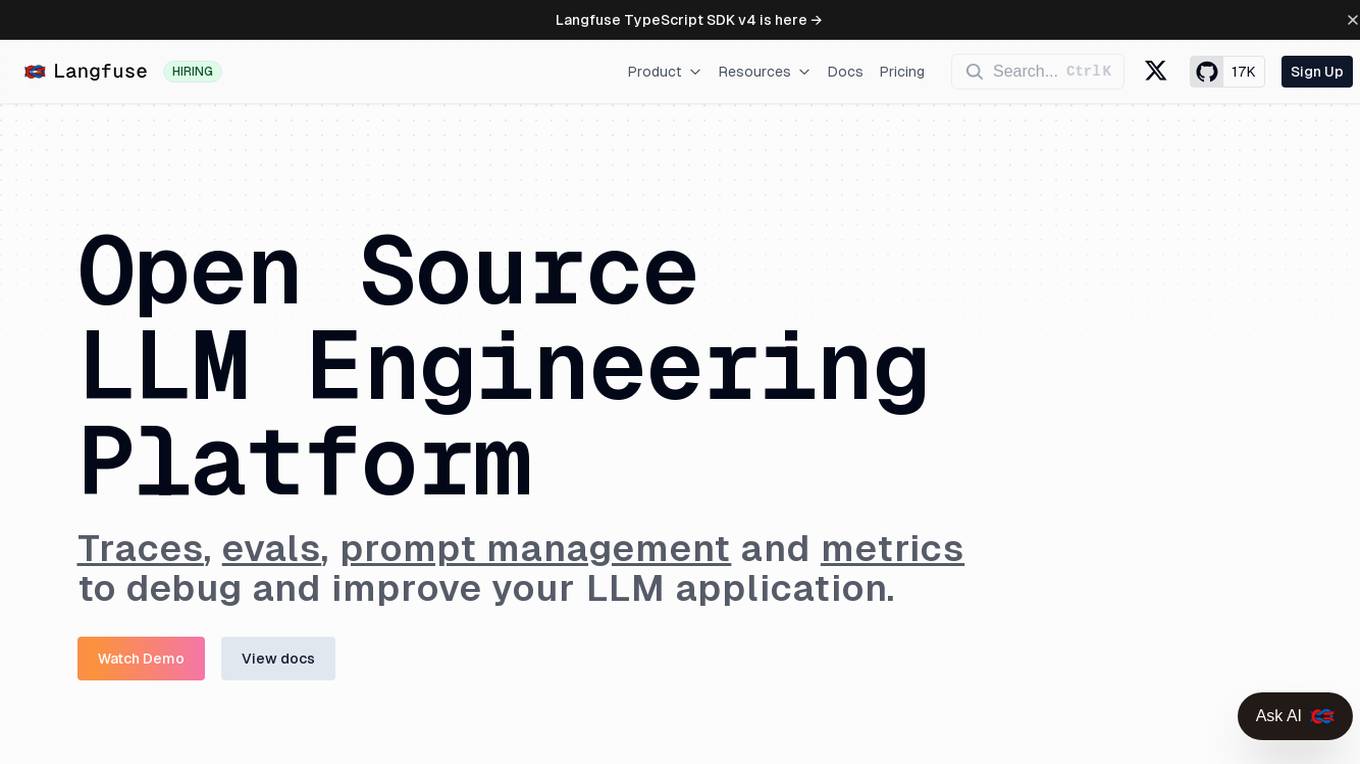
Langfuse
Langfuse is an AI tool that offers the Langfuse TypeScript SDK v4 for building and debugging LLM (Large Language Models) applications. It provides features such as tracing, prompt management, evaluation, and metrics to enhance the performance of LLM applications. Langfuse is backed by a team of experts and offers integrations with various platforms and SDKs. The tool aims to simplify the development process of complex LLM applications and improve overall efficiency.

Langtail
Langtail is a platform that helps developers build, test, and deploy AI-powered applications. It provides a suite of tools to help developers debug prompts, run tests, and monitor the performance of their AI models. Langtail also offers a community forum where developers can share tips and tricks, and get help from other users.
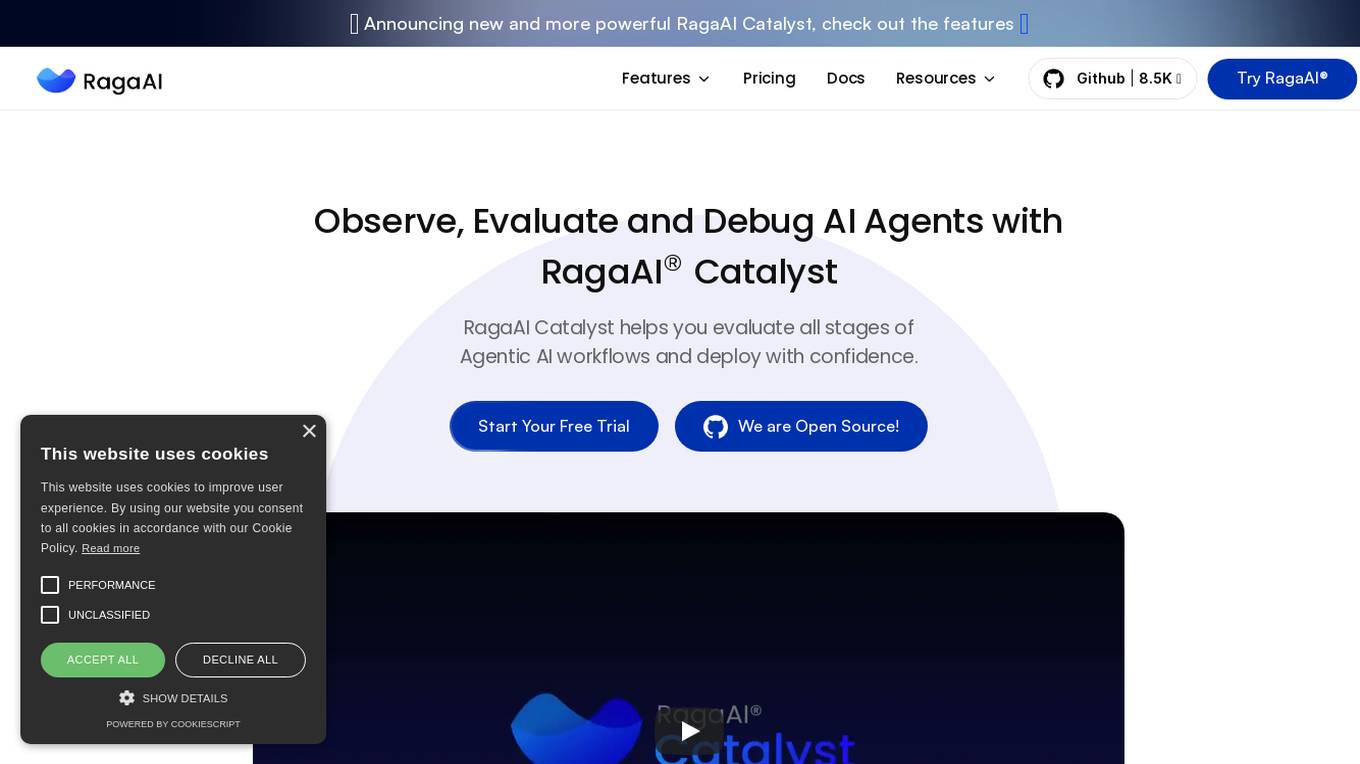
RagaAI Catalyst
RagaAI Catalyst is a sophisticated AI observability, monitoring, and evaluation platform designed to help users observe, evaluate, and debug AI agents at all stages of Agentic AI workflows. It offers features like visualizing trace data, instrumenting and monitoring tools and agents, enhancing AI performance, agentic testing, comprehensive trace logging, evaluation for each step of the agent, enterprise-grade experiment management, secure and reliable LLM outputs, finetuning with human feedback integration, defining custom evaluation logic, generating synthetic data, and optimizing LLM testing with speed and precision. The platform is trusted by AI leaders globally and provides a comprehensive suite of tools for AI developers and enterprises.
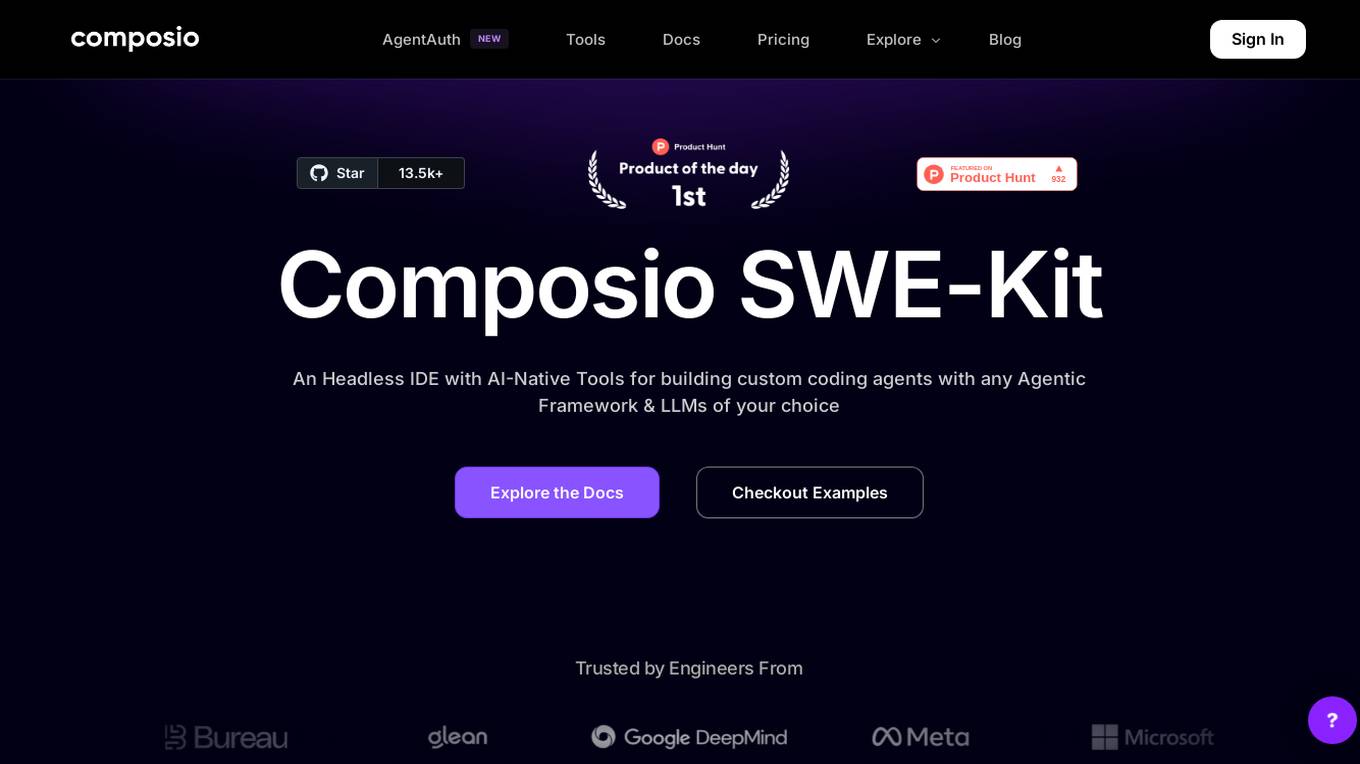
SWE Kit
SWE Kit is an open-source headless IDE designed for building custom coding agents with state-of-the-art performance. It offers AI-native tools to streamline the coding review process, enhance code quality, and optimize development efficiency. The application supports various agentic frameworks and LLM inference providers, providing a flexible runtime environment for seamless codebase interaction. With features like code analysis, code indexing, and third-party service integrations, SWE Kit empowers developers to create and run coding agents effortlessly.
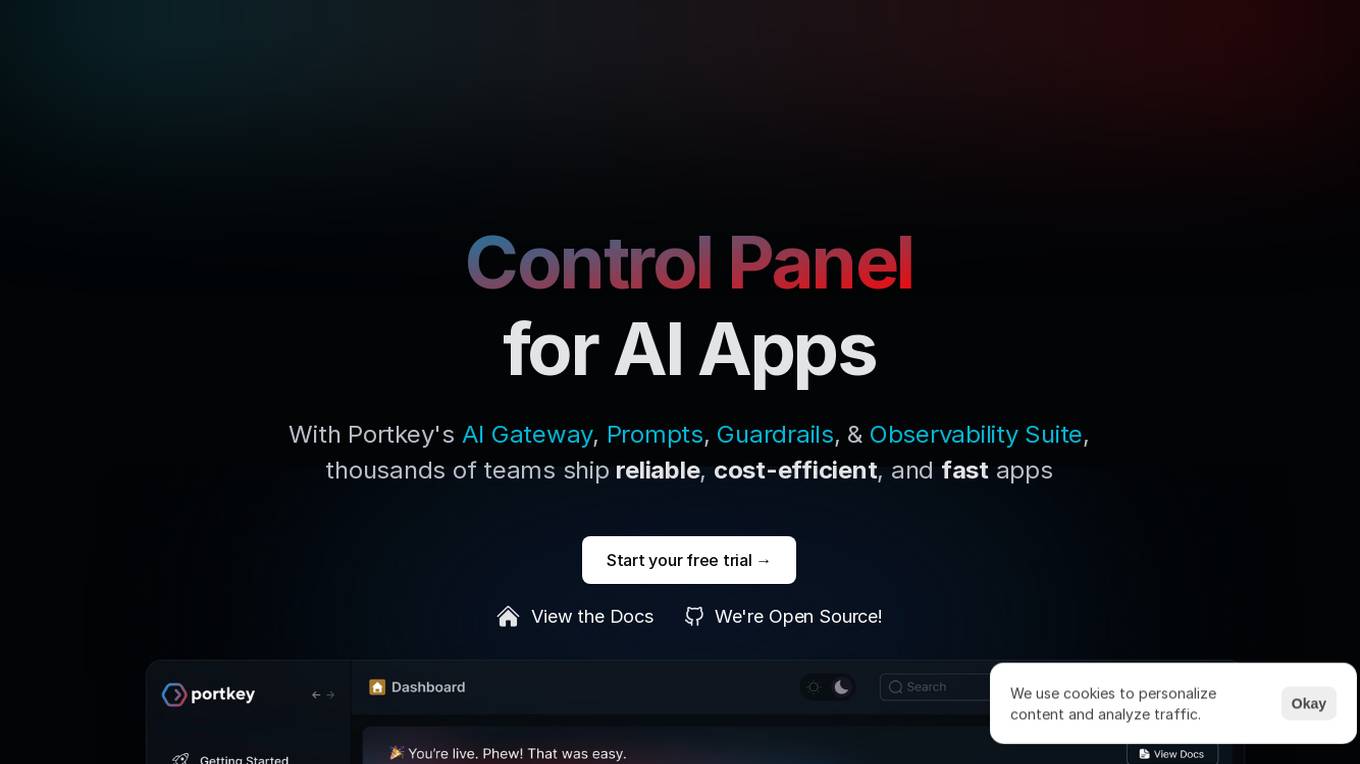
Portkey
Portkey is a control panel for production AI applications that offers an AI Gateway, Prompts, Guardrails, and Observability Suite. It enables teams to ship reliable, cost-efficient, and fast apps by providing tools for prompt engineering, enforcing reliable LLM behavior, integrating with major agent frameworks, and building AI agents with access to real-world tools. Portkey also offers seamless AI integrations for smarter decisions, with features like managed hosting, smart caching, and edge compute layers to optimize app performance.
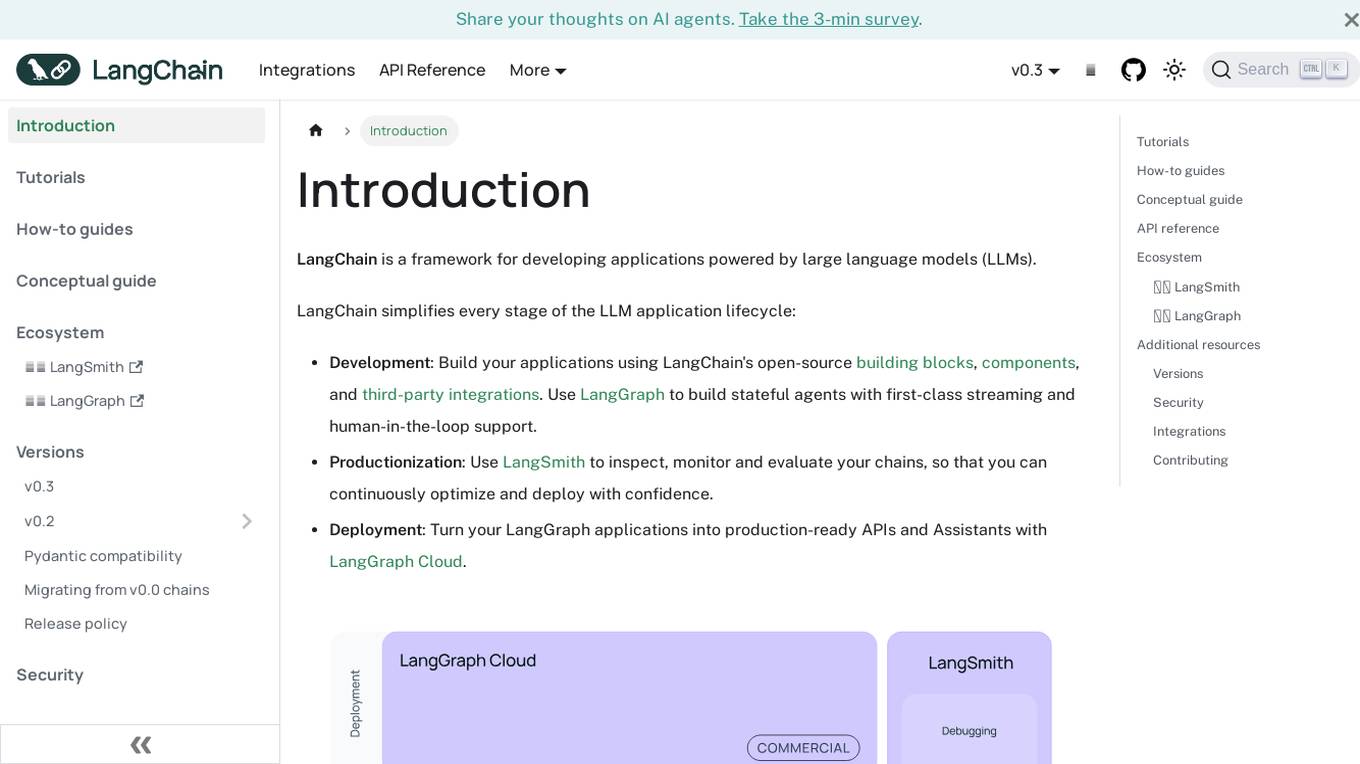
LangChain
LangChain is a framework for developing applications powered by large language models (LLMs). It simplifies every stage of the LLM application lifecycle, including development, productionization, and deployment. LangChain consists of open-source libraries such as langchain-core, langchain-community, and partner packages. It also includes LangGraph for building stateful agents and LangSmith for debugging and monitoring LLM applications.
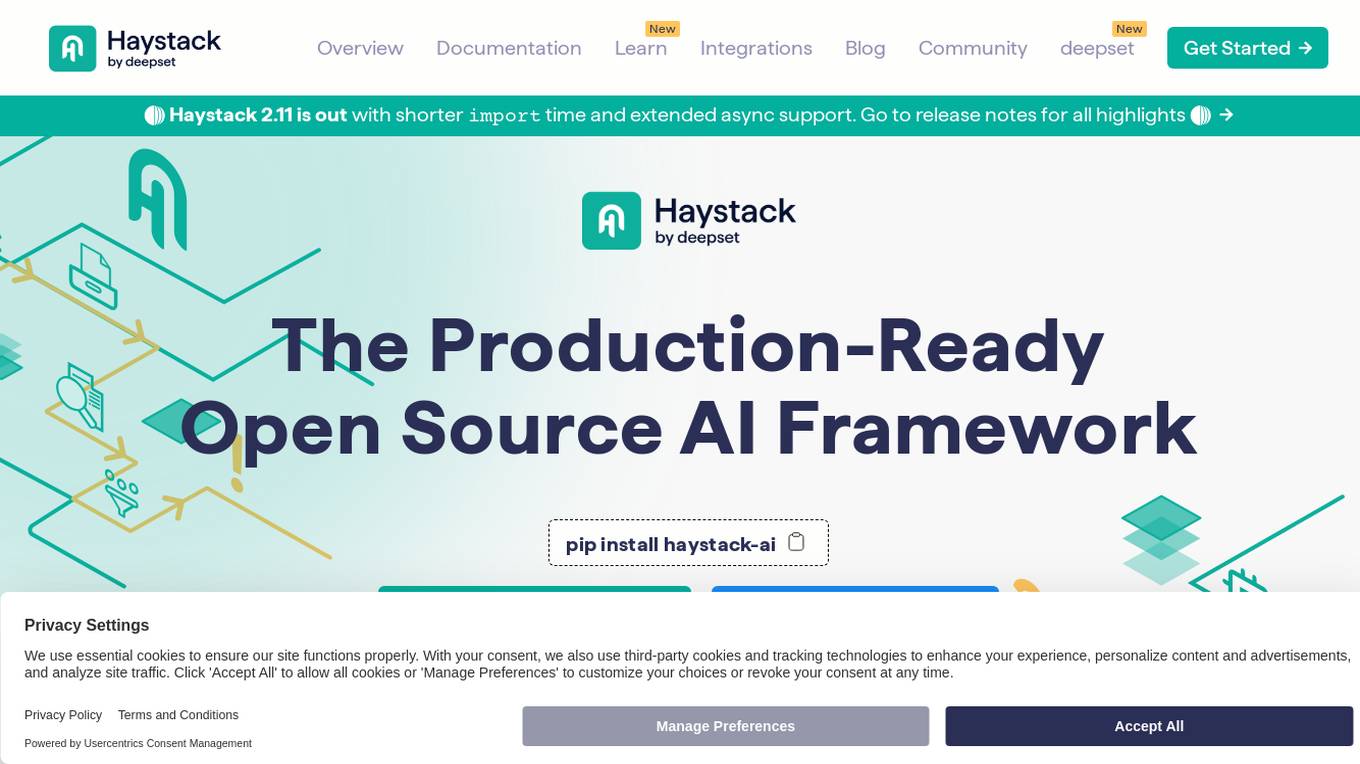
Haystack
Haystack is a production-ready open-source AI framework designed to facilitate building AI applications. It offers a flexible components and pipelines architecture, allowing users to customize and build applications according to their specific requirements. With partnerships with leading LLM providers and AI tools, Haystack provides freedom of choice for users. The framework is built for production, with fully serializable pipelines, logging, monitoring integrations, and deployment guides for full-scale deployments on various platforms. Users can build Haystack apps faster using deepset Studio, a platform for drag-and-drop construction of pipelines, testing, debugging, and sharing prototypes.
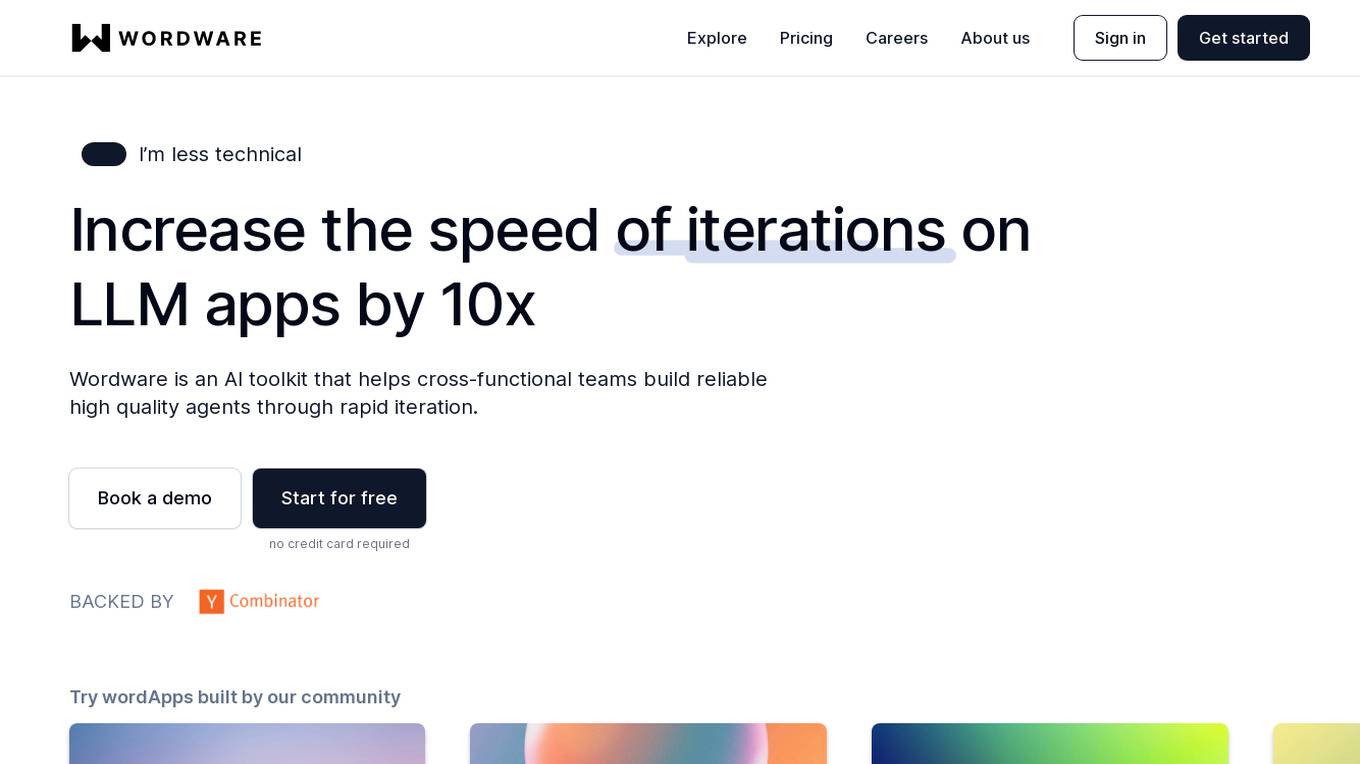
Wordware
Wordware is an AI toolkit that empowers cross-functional teams to build reliable high-quality agents through rapid iteration. It combines the best aspects of software with the power of natural language, freeing users from traditional no-code tool constraints. With advanced technical capabilities, multiple LLM providers, one-click API deployment, and multimodal support, Wordware offers a seamless experience for AI app development and deployment.
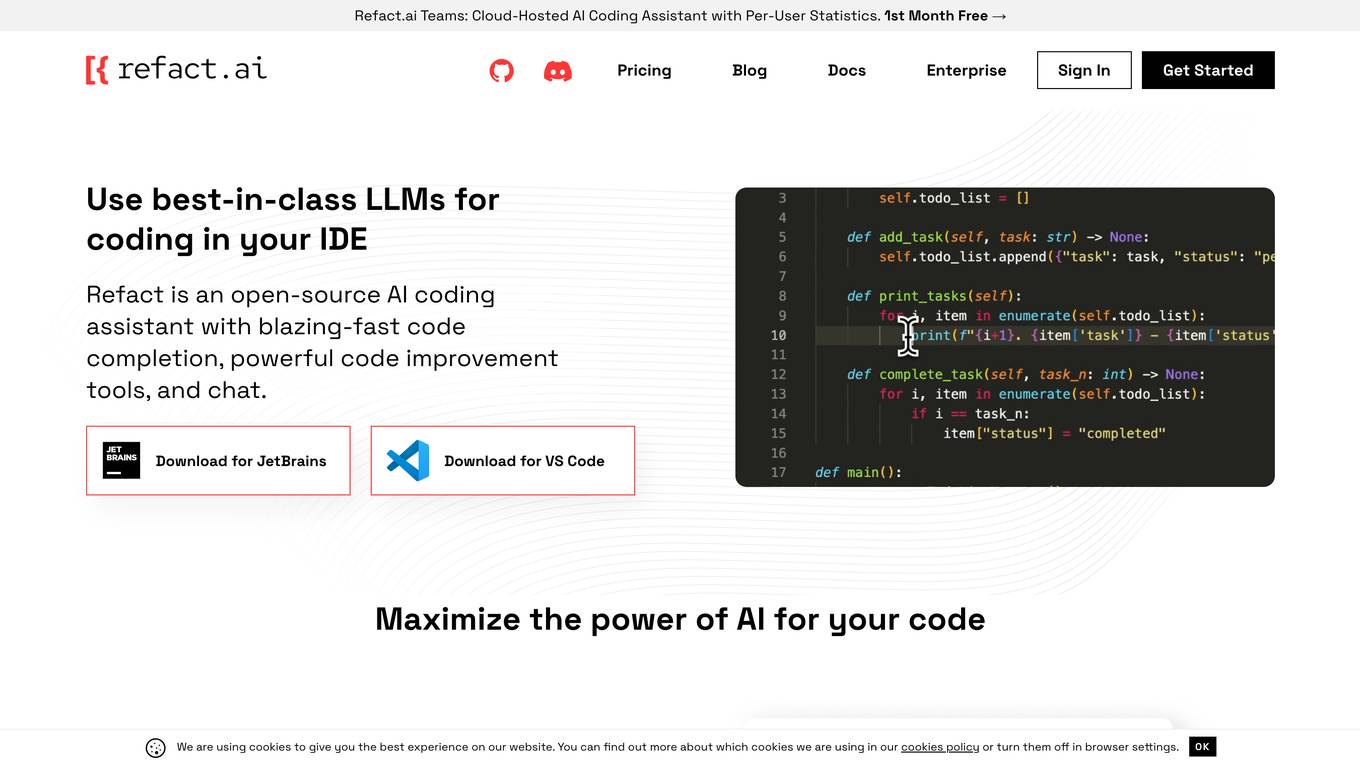
Refact.ai
Refact.ai is an open-source AI coding assistant that offers a range of features including code completion, refactoring, and chat. It supports various LLMs such as GPT-4 and Code LLama, allowing users to choose the model that best suits their needs. Refact understands the context of the codebase using a fill-in-the-middle technique, providing relevant suggestions. Users can opt for a self-hosted version or adjust privacy settings for the plugin.

Whybug
Whybug is an AI tool designed to help developers debug their code by providing explanations for errors. By utilizing a large language model trained on data from StackExchange and other sources, Whybug can predict the causes of errors and suggest fixes. Users can simply paste an error message and receive detailed explanations on how to resolve the issue. The tool aims to streamline the debugging process and improve code quality.
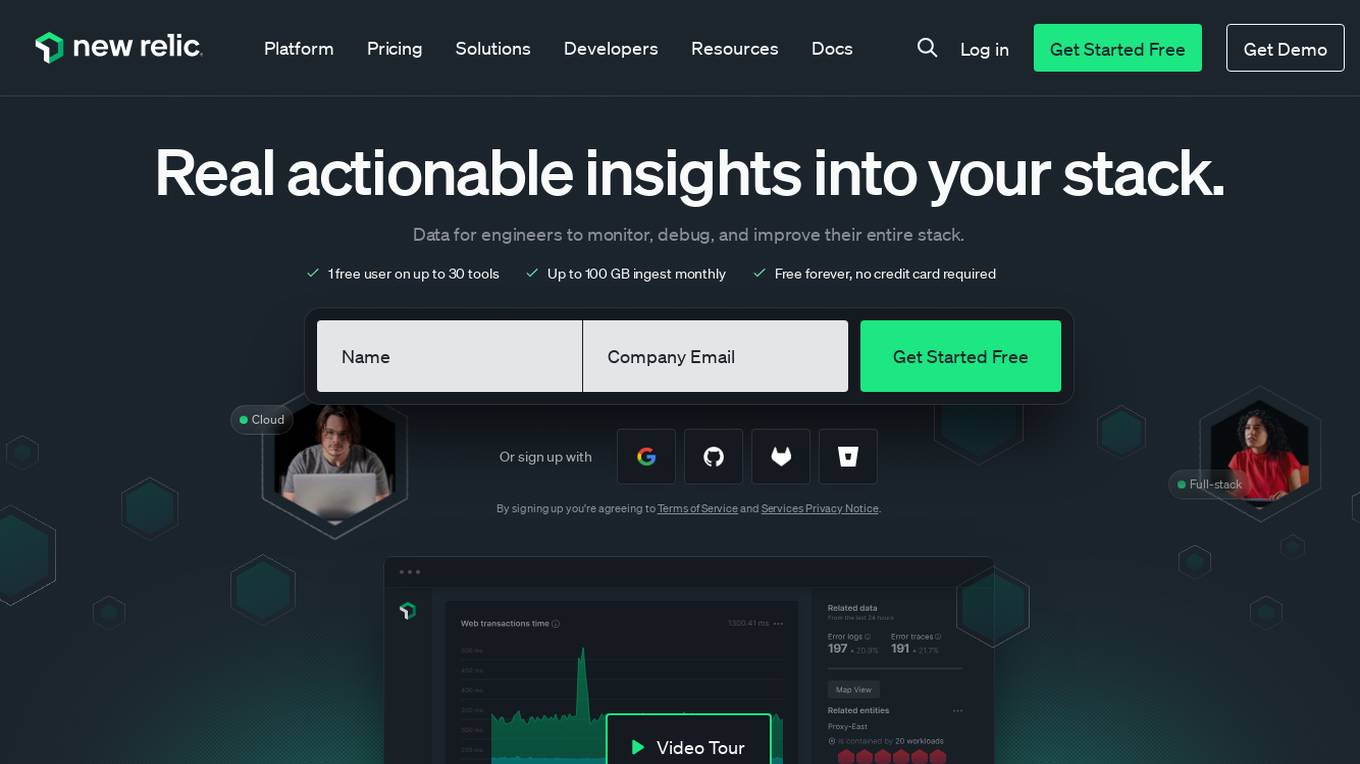
New Relic
New Relic is an AI monitoring platform that offers an all-in-one observability solution for monitoring, debugging, and improving the entire technology stack. With over 30 capabilities and 750+ integrations, New Relic provides the power of AI to help users gain insights and optimize performance across various aspects of their infrastructure, applications, and digital experiences.
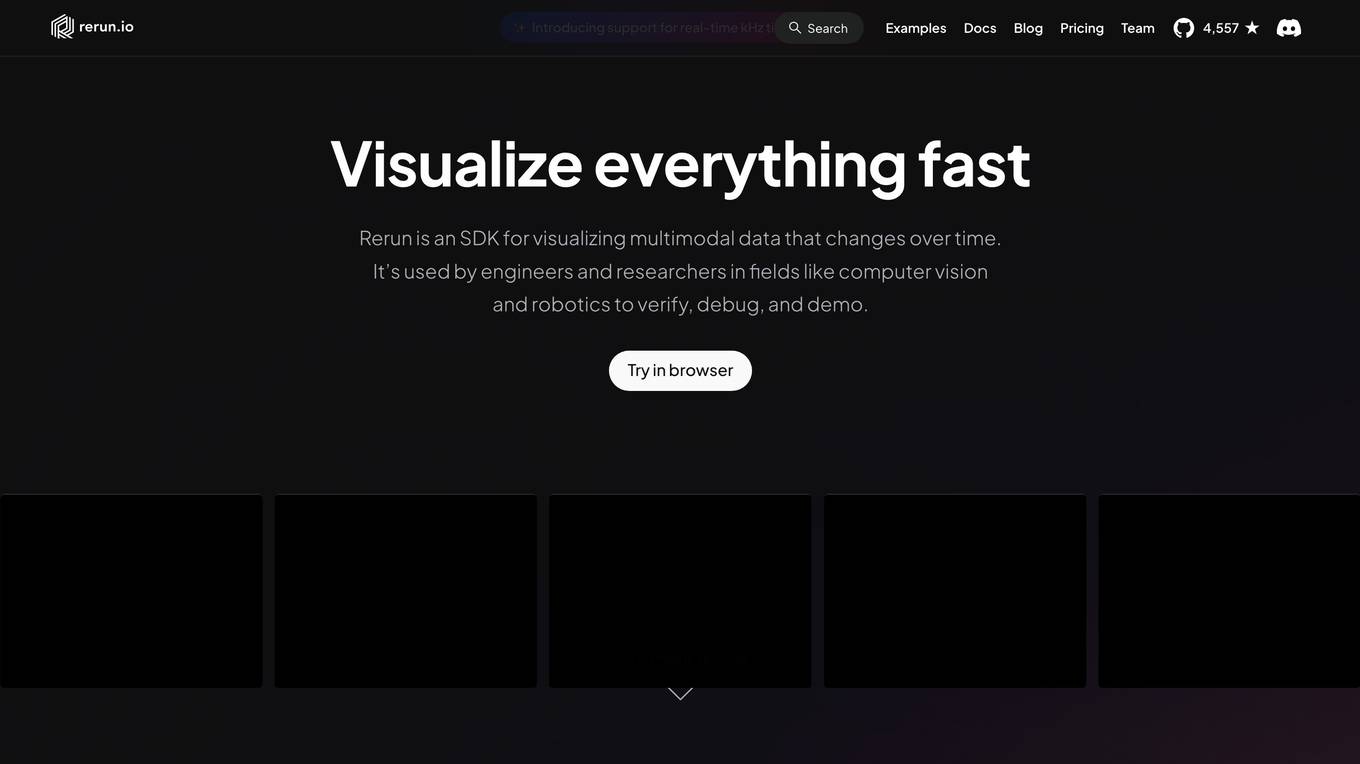
Rerun
Rerun is an SDK, time-series database, and visualizer for temporal and multimodal data. It is used in fields like robotics, spatial computing, 2D/3D simulation, and finance to verify, debug, and explain data. Rerun allows users to log data like tensors, point clouds, and text to create streams, visualize and interact with live and recorded streams, build layouts, customize visualizations, and extend data and UI functionalities. The application provides a composable data model, dynamic schemas, and custom views for enhanced data visualization and analysis.

Snaplet
Snaplet is a data management tool for developers that provides AI-generated dummy data for local development, end-to-end testing, and debugging. It uses a real programming language (TypeScript) to define and edit data, ensuring type safety and auto-completion. Snaplet understands database structures and relationships, automatically transforming personally identifiable information and seeding data accordingly. It integrates seamlessly into development workflows, providing data where it's needed most: on local machines, for CI/CD testing, and preview environments.
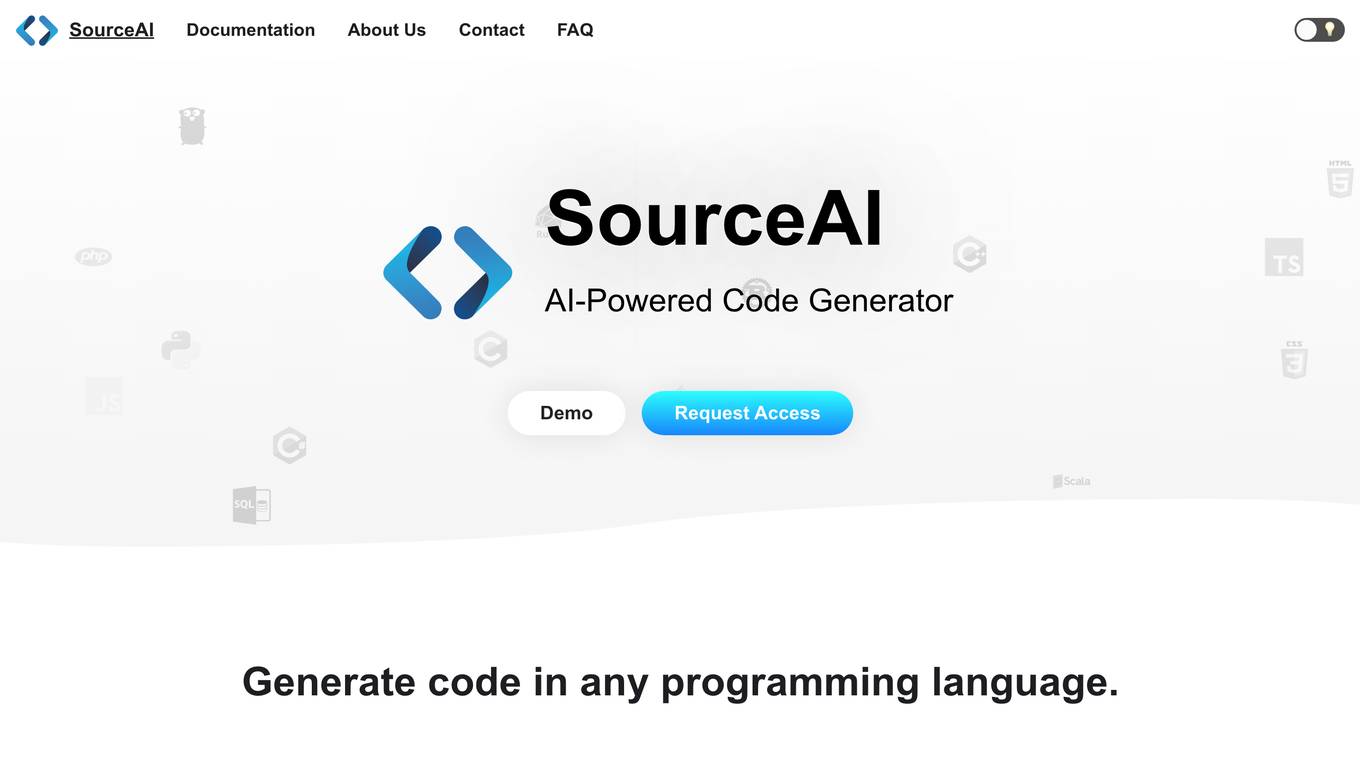
SourceAI
SourceAI is an AI-powered code generator that allows users to generate code in any programming language. It is easy to use, even for non-developers, and has a clear and intuitive interface. SourceAI is powered by GPT-3 and Codex, the most advanced AI technology available. It can be used to generate code for a variety of tasks, including calculating the factorial of a number, finding the roots of a polynomial, and translating text from one language to another.
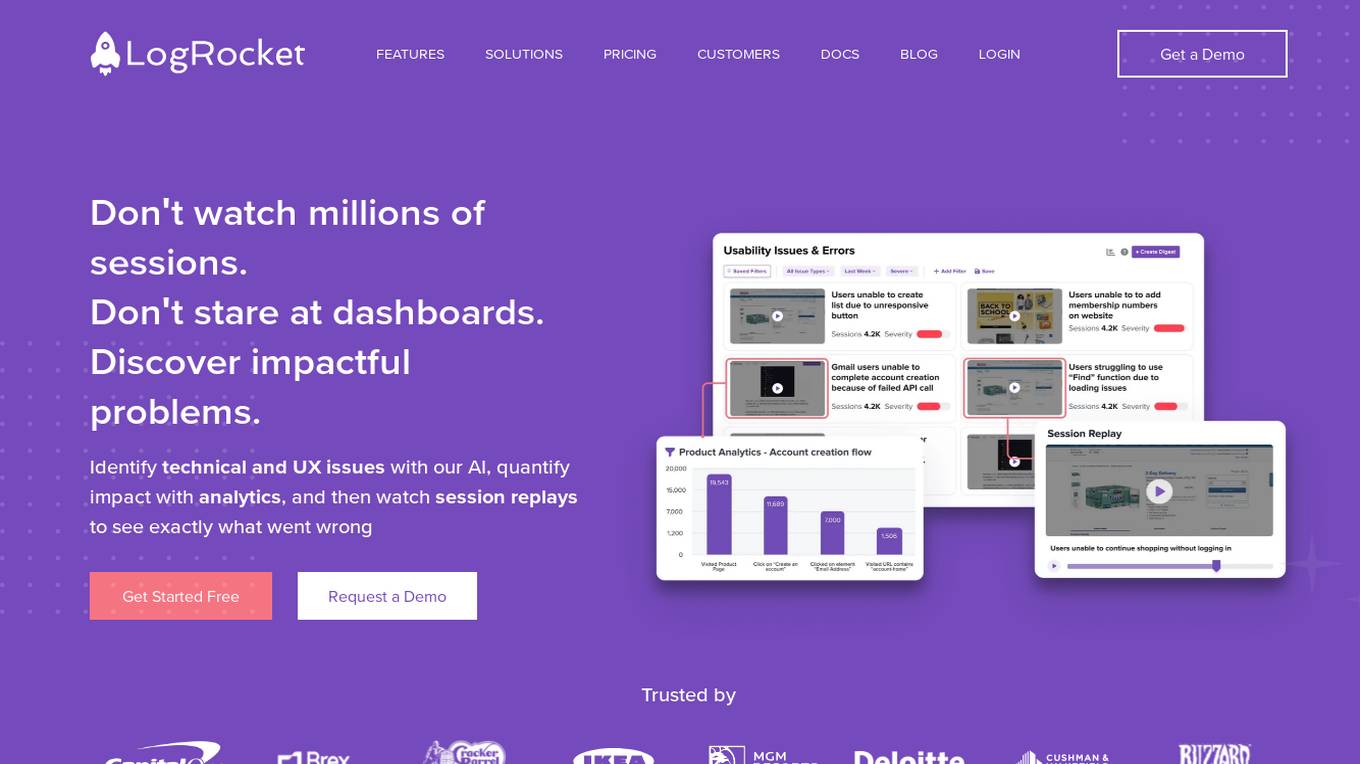
LogRocket
LogRocket is a session replay, product analytics, and issue detection platform that helps software teams deliver the best web and mobile experiences. With LogRocket, you can see exactly what users experienced on your app, as well as DOM playback, console and network logs, errors, and performance data. You can also surface the most impactful user issues with JavaScript errors, network errors, stack traces, automatic triaging, and alerting. LogRocket also provides product analytics to help you understand how users are interacting with your app, and UX analytics to help you visualize how users experience your app at both the individual and aggregate level.
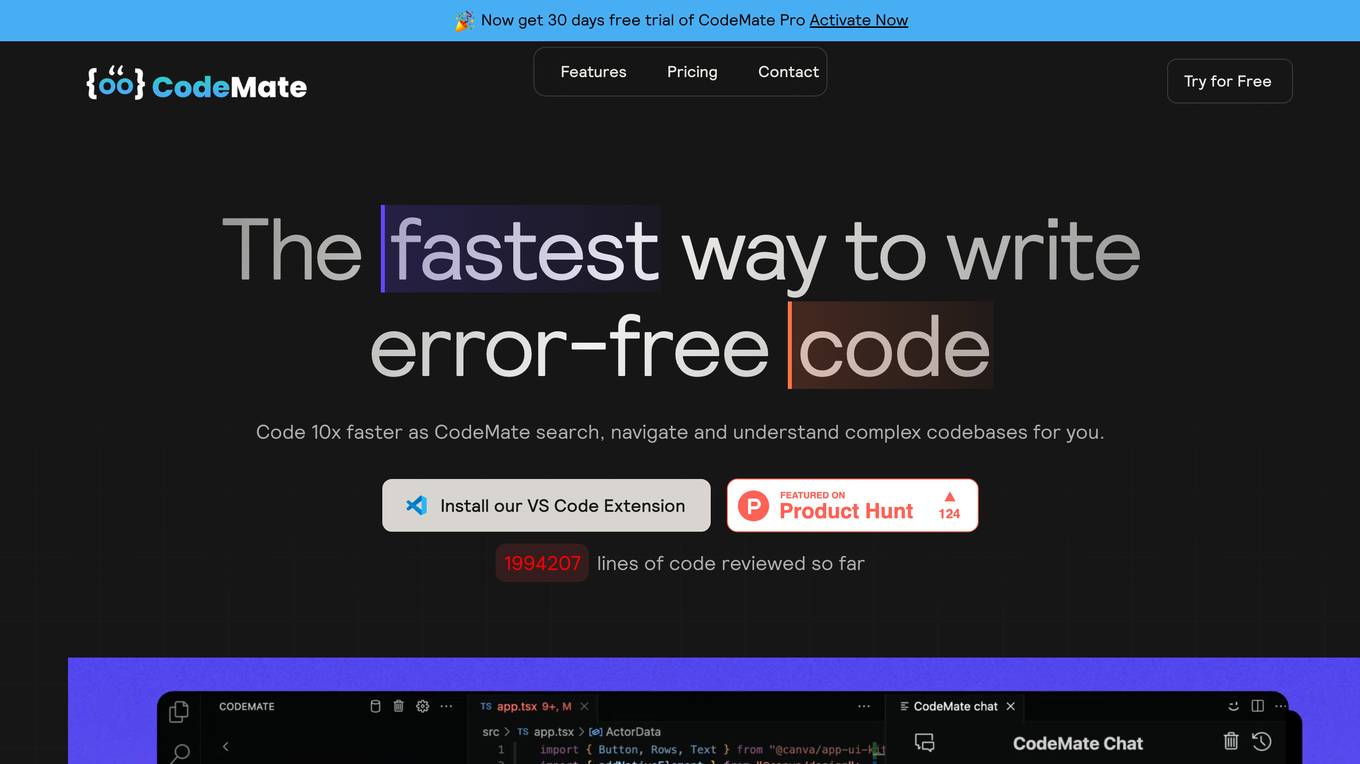
CodeMate
CodeMate is an AI pair programmer tool designed to help developers write error-free code faster. It offers features like code navigation, understanding complex codebases, intuitive interface for smarter coding, instant debugging, code refactoring, and AI-powered code reviews. CodeMate supports all programming languages and provides suggestions for code optimizations. The tool ensures the security and privacy of user code and offers different pricing plans for individual developers, teams, and enterprises. Users can interact with their codebase, documentation, and Git repositories using CodeMate Chat. The tool aims to improve code quality and productivity by acting as a co-developer while programming.
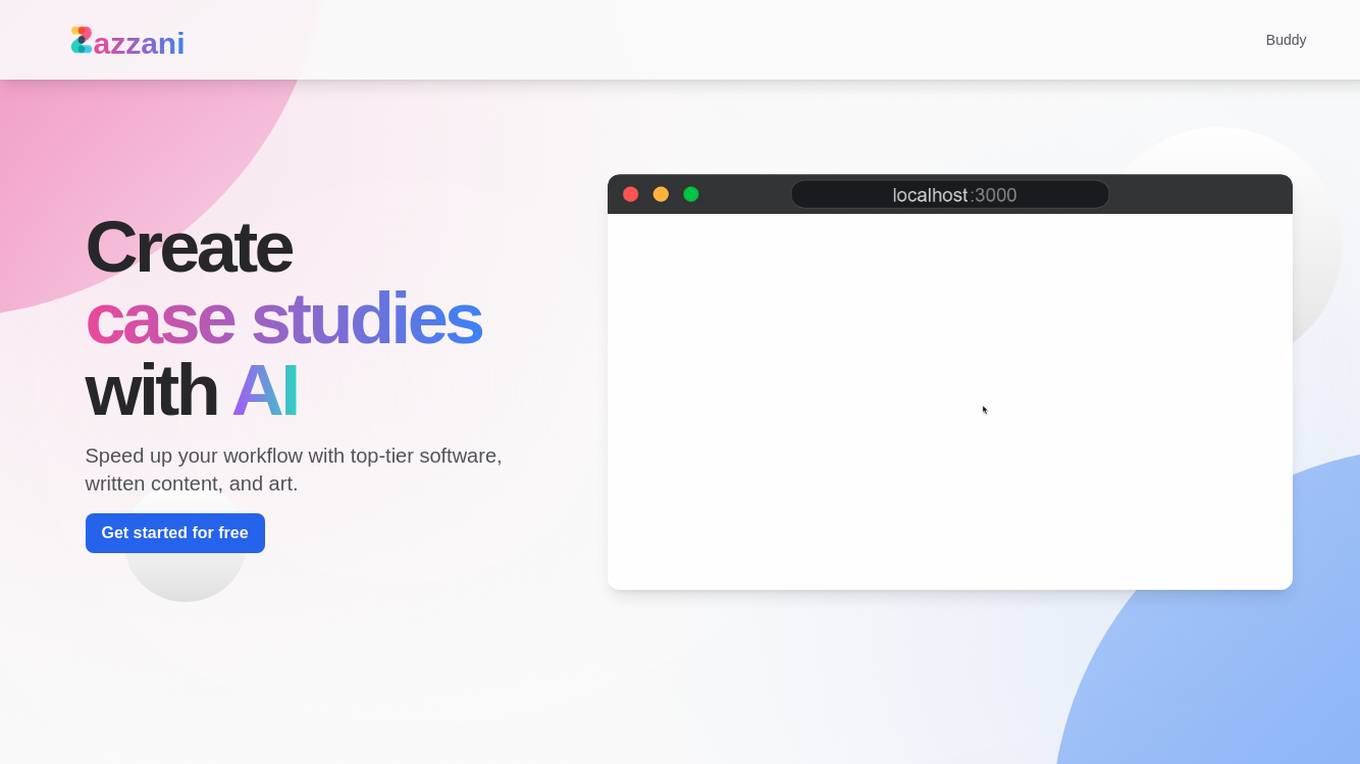
Zazzani AI Buddy
Zazzani AI Buddy is an AI-powered platform that empowers users to create, debug code, write articles, and communicate with AI in multiple languages. It enhances productivity by generating ideas, providing context-specific answers, and eliminating monotony through automated tasks. Users can sign up to receive updates and contribute to the platform's growth. Zazzani AI Buddy aims to streamline workflows and inspire creativity through its innovative AI capabilities.
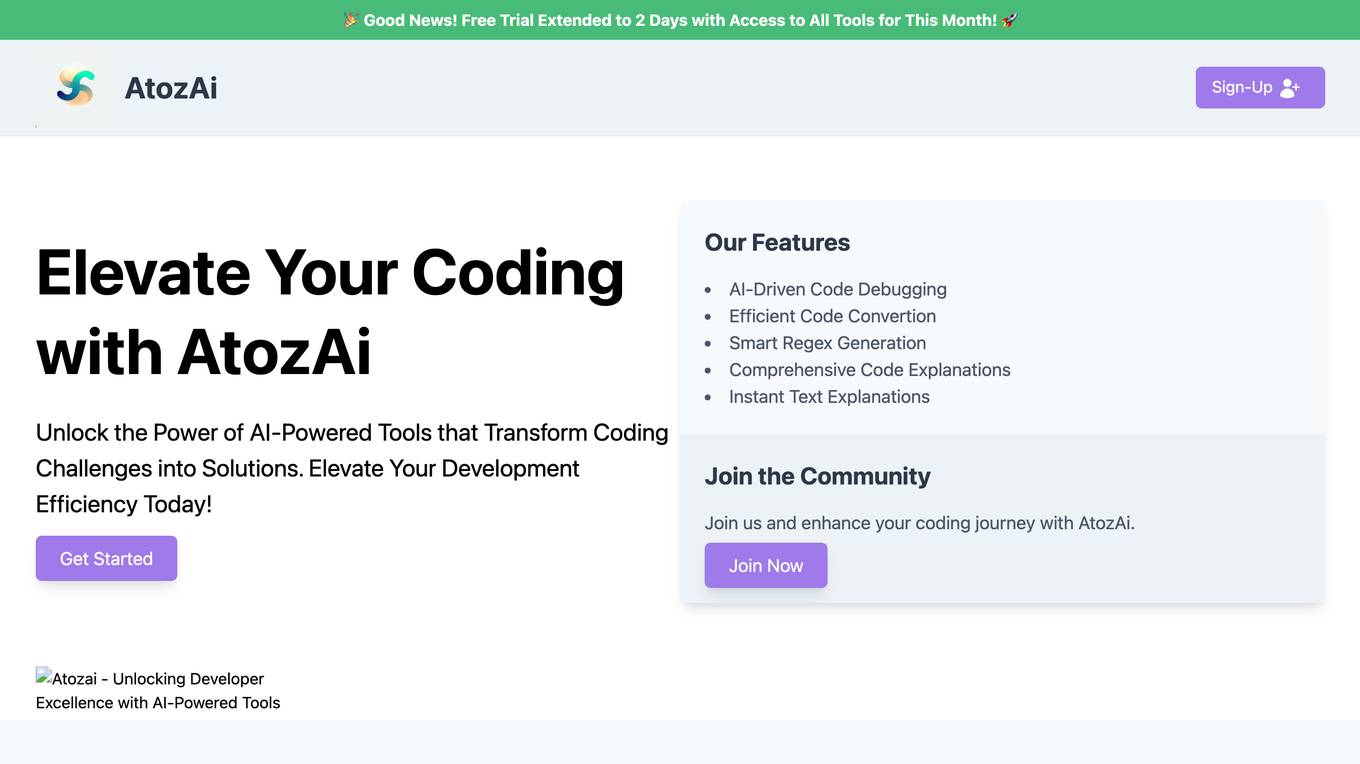
AtozAi
AtozAi is an AI application designed to empower developers by providing AI-powered tools that enhance coding efficiency and productivity. The platform offers features such as AI-driven code debugging, efficient code conversion, smart regex generation, comprehensive code explanations, and instant text explanations. AtozAi aims to cover a wide range of coding tasks with specialized AI algorithms, continually expanding its toolkit to make tasks easier, more efficient, and creative for developers.
1 - Open Source AI Tools

langwatch
LangWatch is a monitoring and analytics platform designed to track, visualize, and analyze interactions with Large Language Models (LLMs). It offers real-time telemetry to optimize LLM cost and latency, a user-friendly interface for deep insights into LLM behavior, user analytics for engagement metrics, detailed debugging capabilities, and guardrails to monitor LLM outputs for issues like PII leaks and toxic language. The platform supports OpenAI and LangChain integrations, simplifying the process of tracing LLM calls and generating API keys for usage. LangWatch also provides documentation for easy integration and self-hosting options for interested users.
20 - OpenAI Gpts
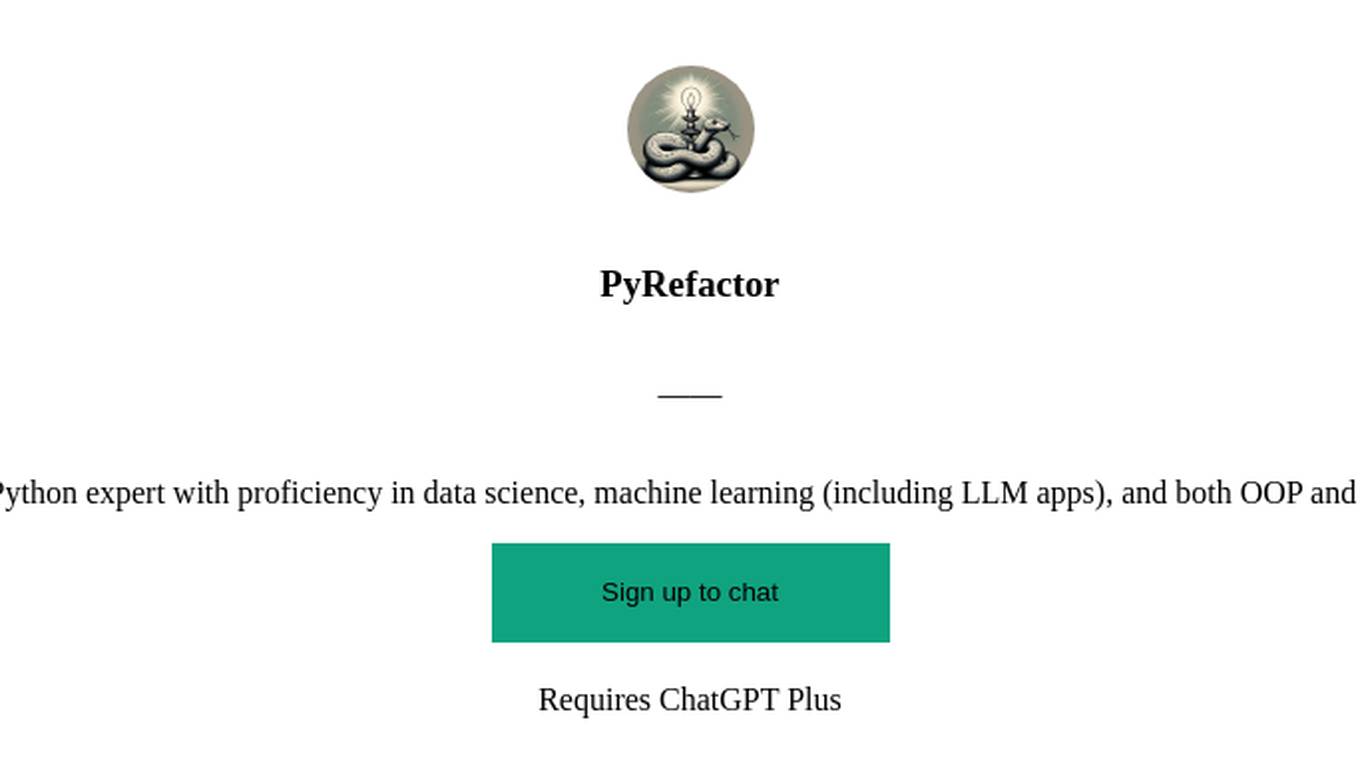
PyRefactor
Refactor python code. Python expert with proficiency in data science, machine learning (including LLM apps), and both OOP and functional programming.
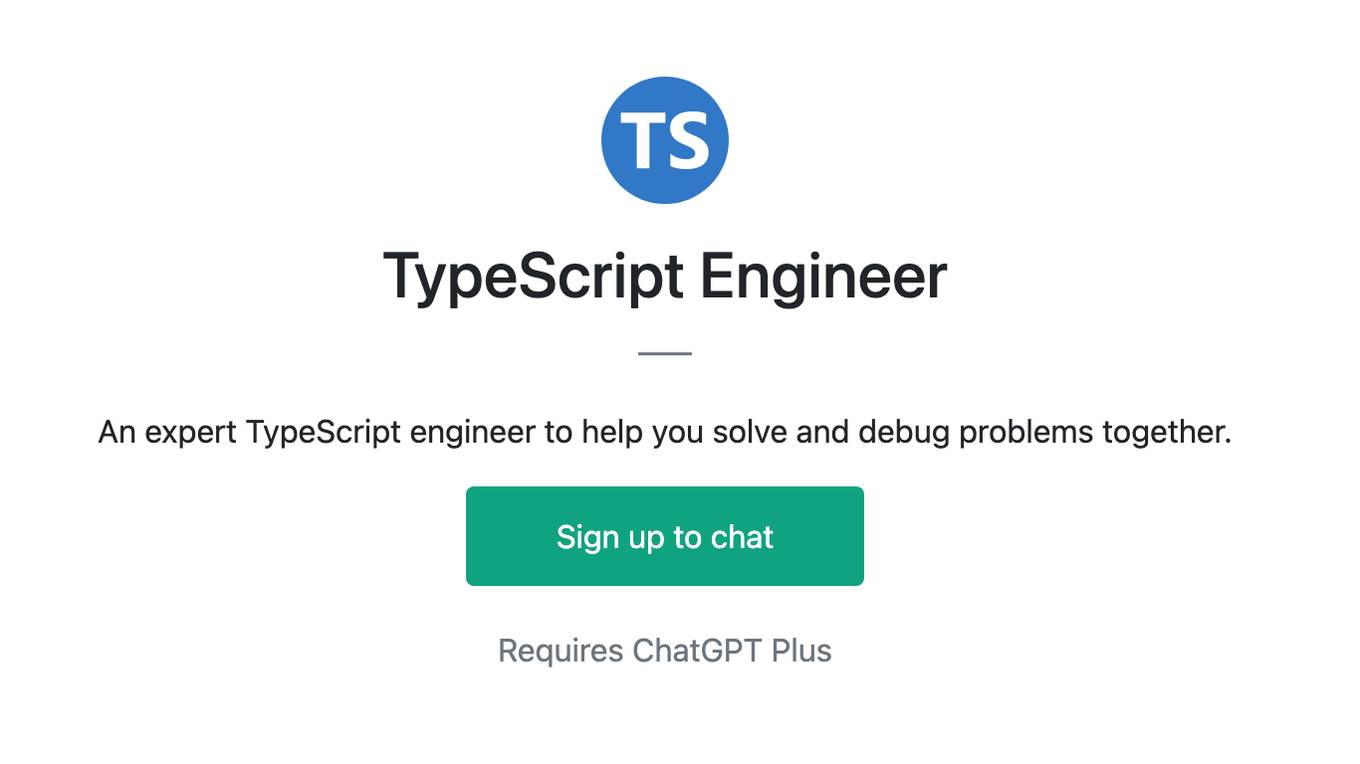
TypeScript Engineer
An expert TypeScript engineer to help you solve and debug problems together.
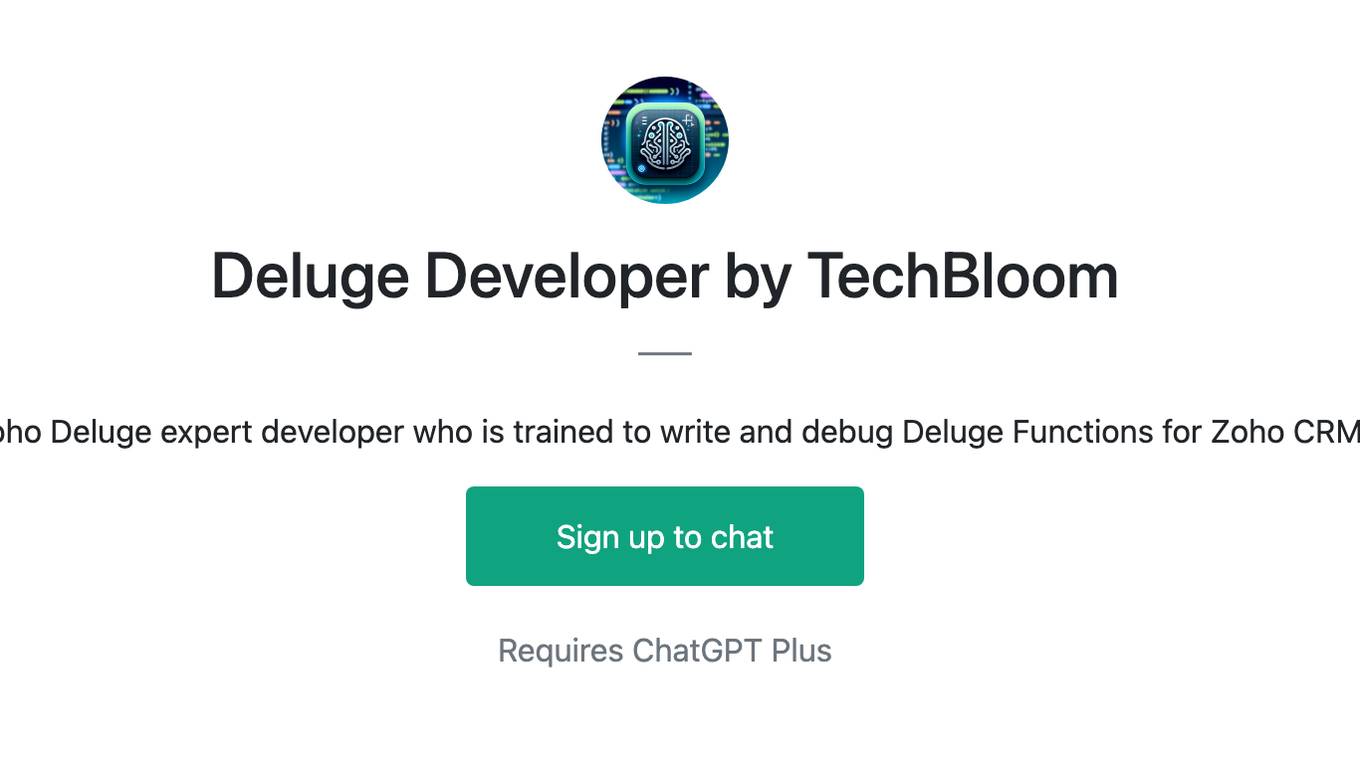
Deluge Developer by TechBloom
Zoho Deluge expert developer who is trained to write and debug Deluge Functions for Zoho CRM
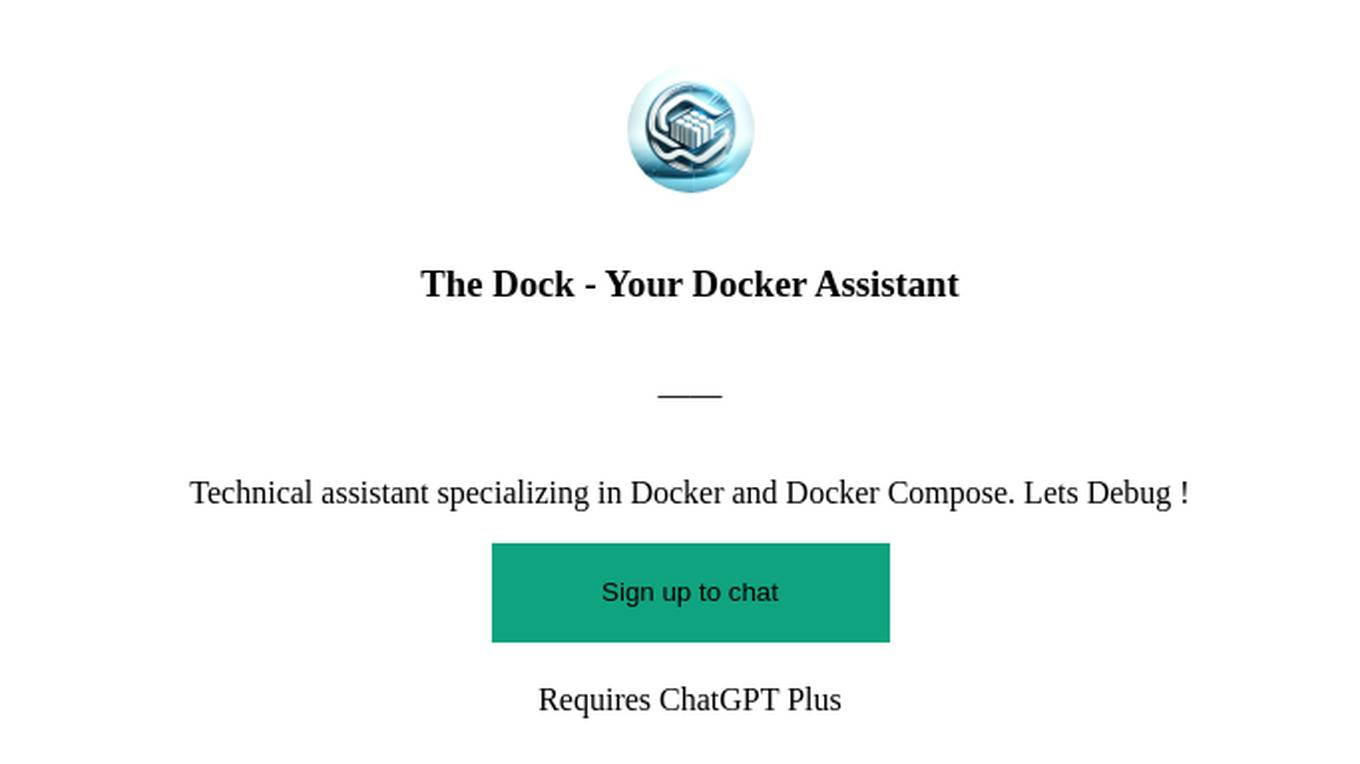
The Dock - Your Docker Assistant
Technical assistant specializing in Docker and Docker Compose. Lets Debug !
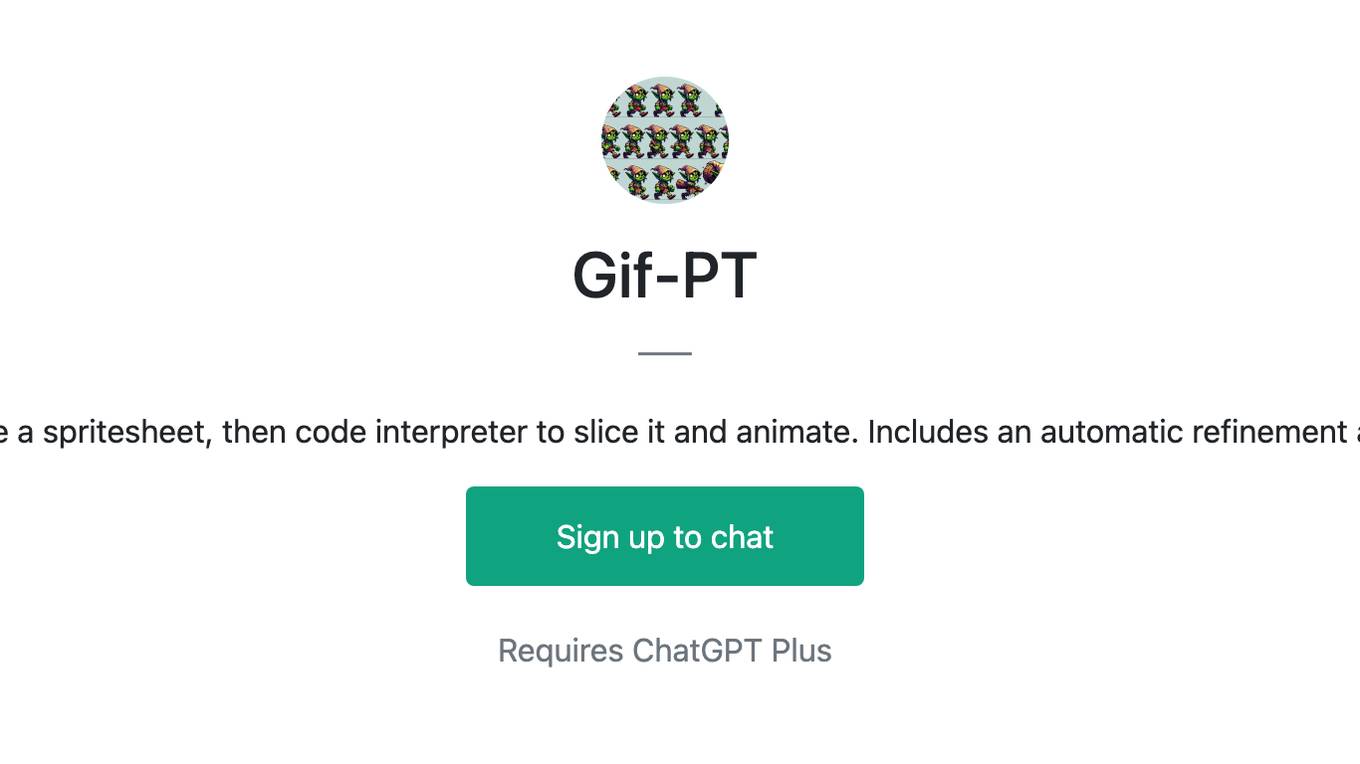
Gif-PT
Gif generator. Uses Dalle3 to make a spritesheet, then code interpreter to slice it and animate. Includes an automatic refinement and debug mode. v1.2 GPTavern

María Dolores
Inspired by a TV character, lives on a farm, analytical and philosophical, with a 'DEBUG' mode.
